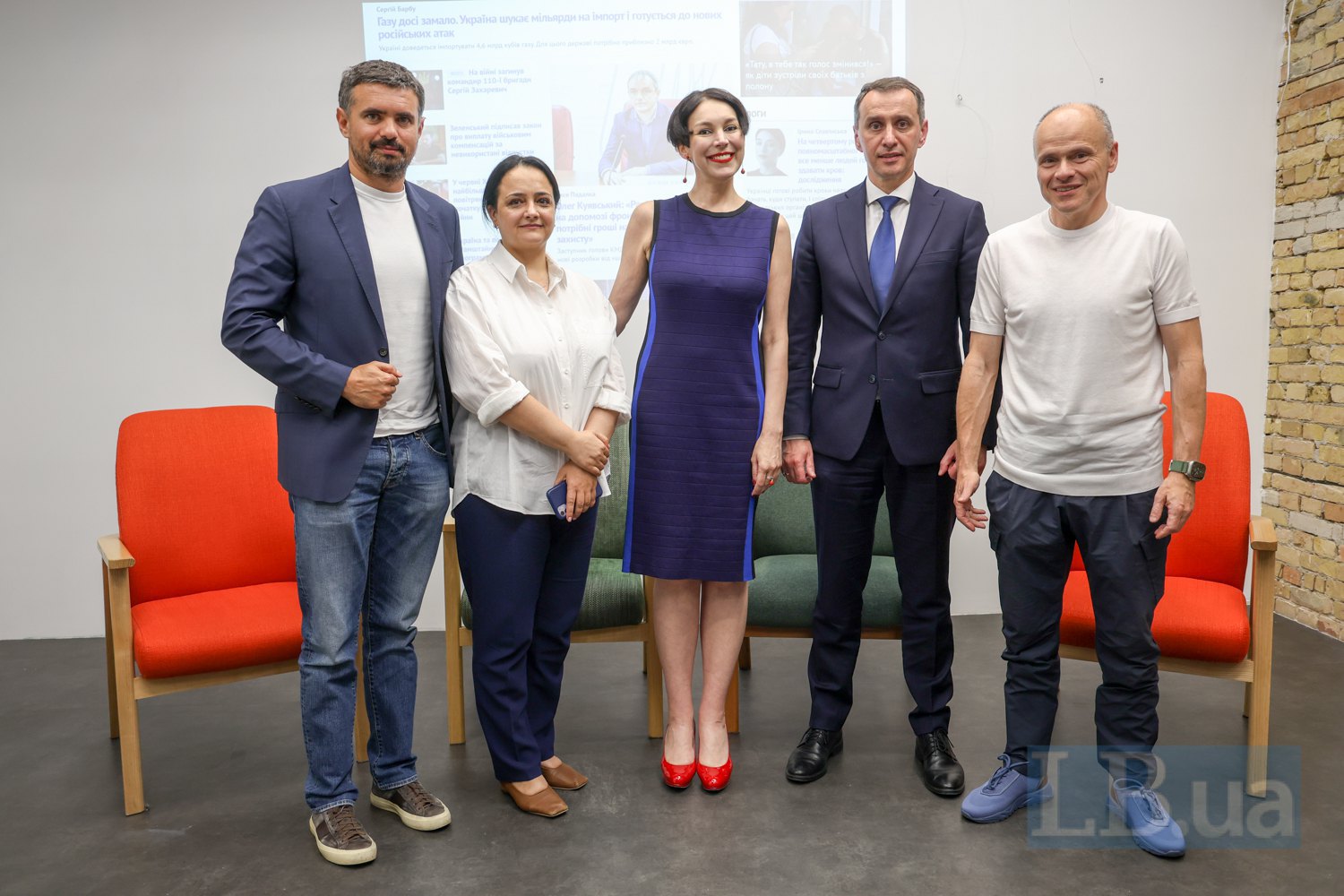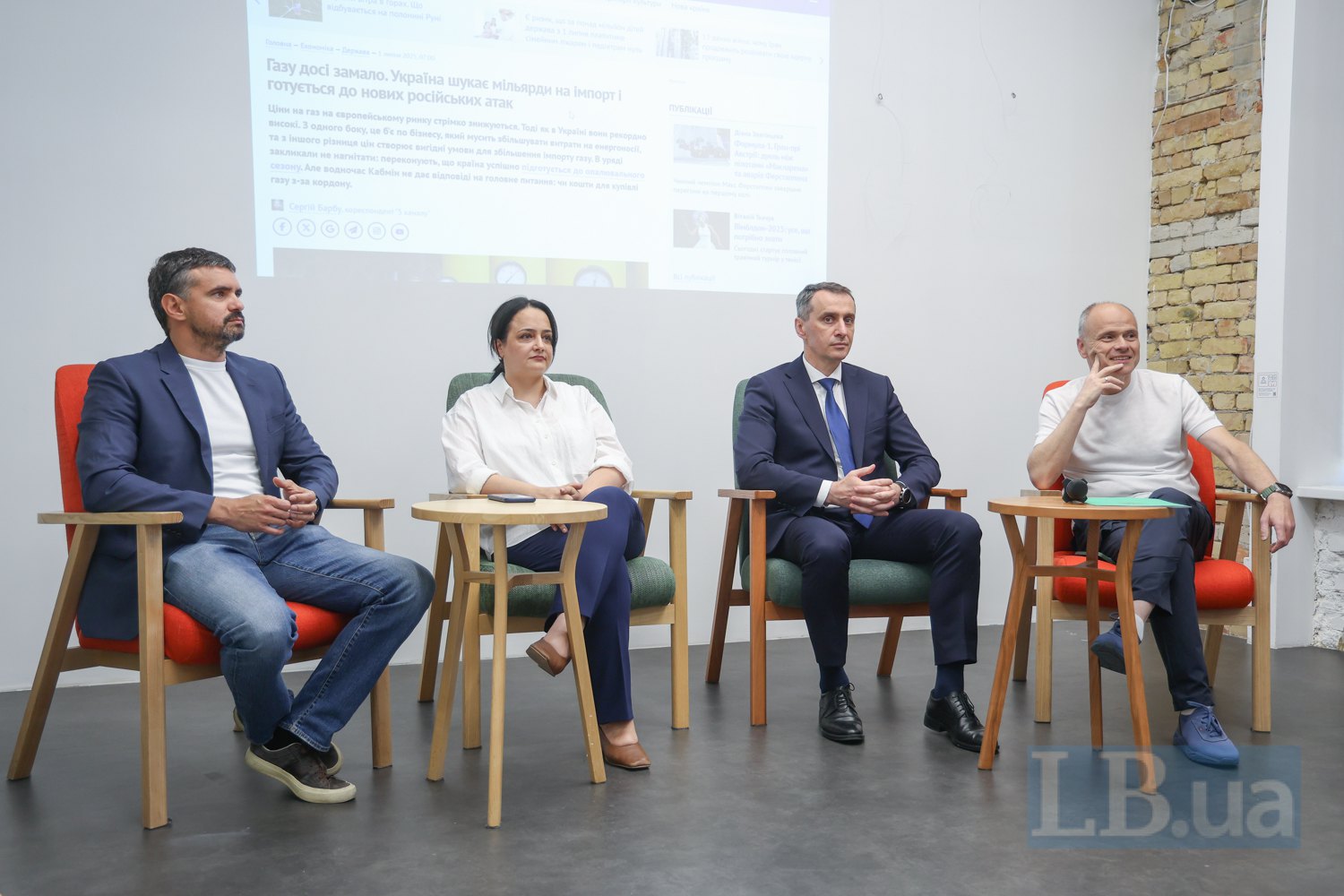
Challenges for medical reform
The experience of European countries shows that healthcare reform is a long process, says Health Minister Viktor Lyashko. But the effectiveness of healthcare reform in Ukraine depends on how it overcomes challenges. Among the main challenges, the minister named:
- Lack of human capital
The crisis in medical personnel, notes Viktor Lyashko, boils down to the large number of employees of retirement age. In addition, it is exacerbated by the global crisis, which affects even the most developed countries. And as soon as Ukraine joins the European Union, we will see a significant outflow of nurses, the minister is confident.
"I understand what will happen five years after that [accession to the EU]. I see how the outflow of personnel has occurred in other countries. Then they returned, but this is something we must predict," said the head of the Ministry of Health.
According to him, today we need to find motivation to encourage people to enter the profession, to train personnel not only to fill vacancies, but also to survive the predicted slump due to staff outflow.
"We have elaborated a strategy for the development of nursing in Ukraine, which was approved by the board. Recently, we held a forum where nurses gathered and discussed what motivates them to work in the profession. And it's not just financial or economic factors," Lyashko said.
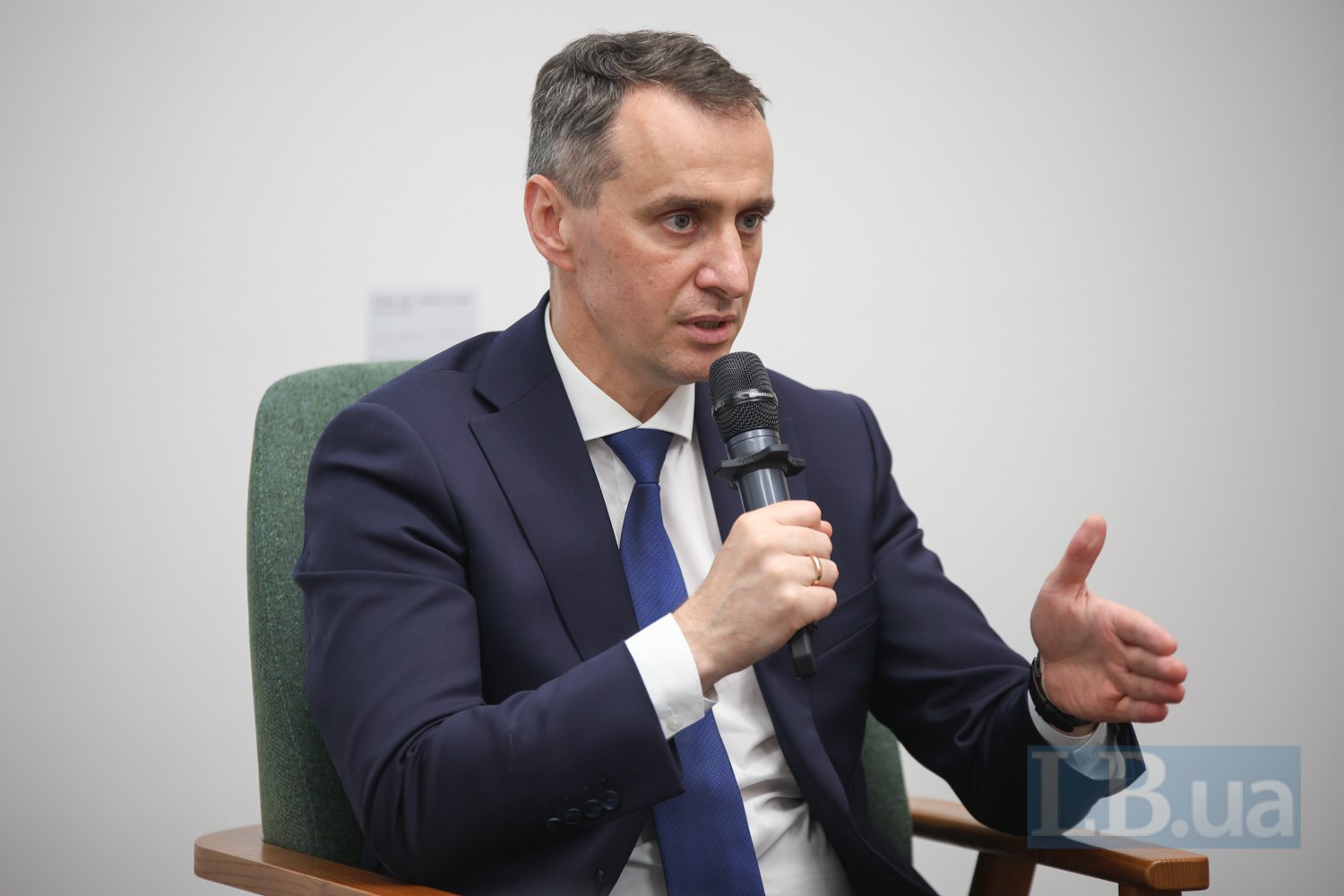
According to Nataliya Husak, head of the National Health Service (NHSU), the demographic situation in the country is giving rise to new segments of the medical market that have not yet been formed – nursing care hospitals.
"This is what the healthcare system needs, and what is currently lacking. These are the realities we are facing as we move into the future," says Husak.
- Economic development
"You can't dream of a perfect healthcare system that responds to all challenges when it is not backed by financial resources. This is a challenge that must be discussed right away, at the outset," Lyashko believes.
After all, any changes to the healthcare system will always be limited by financial capabilities, so the country's economy needs to be boosted, adds the head of the Ministry of Health.
- The courage to tell the truth
"We are building a patient-oriented healthcare system, but everyone in this system either leaves something unsaid or does not always tell the truth, which distorts certain things, certain initiatives – and we will not be able to move where we want to go," Lyashko believes.
New system for distributing internships
In 2025, after three years of preparation, a system of electronic distribution for internships will be launched for those who studied on a budget. The distribution will work similarly to admission to university after the NMT (National multi-subject test, exams taken to complete secondary education), said Health Minister Viktor Lyashko.
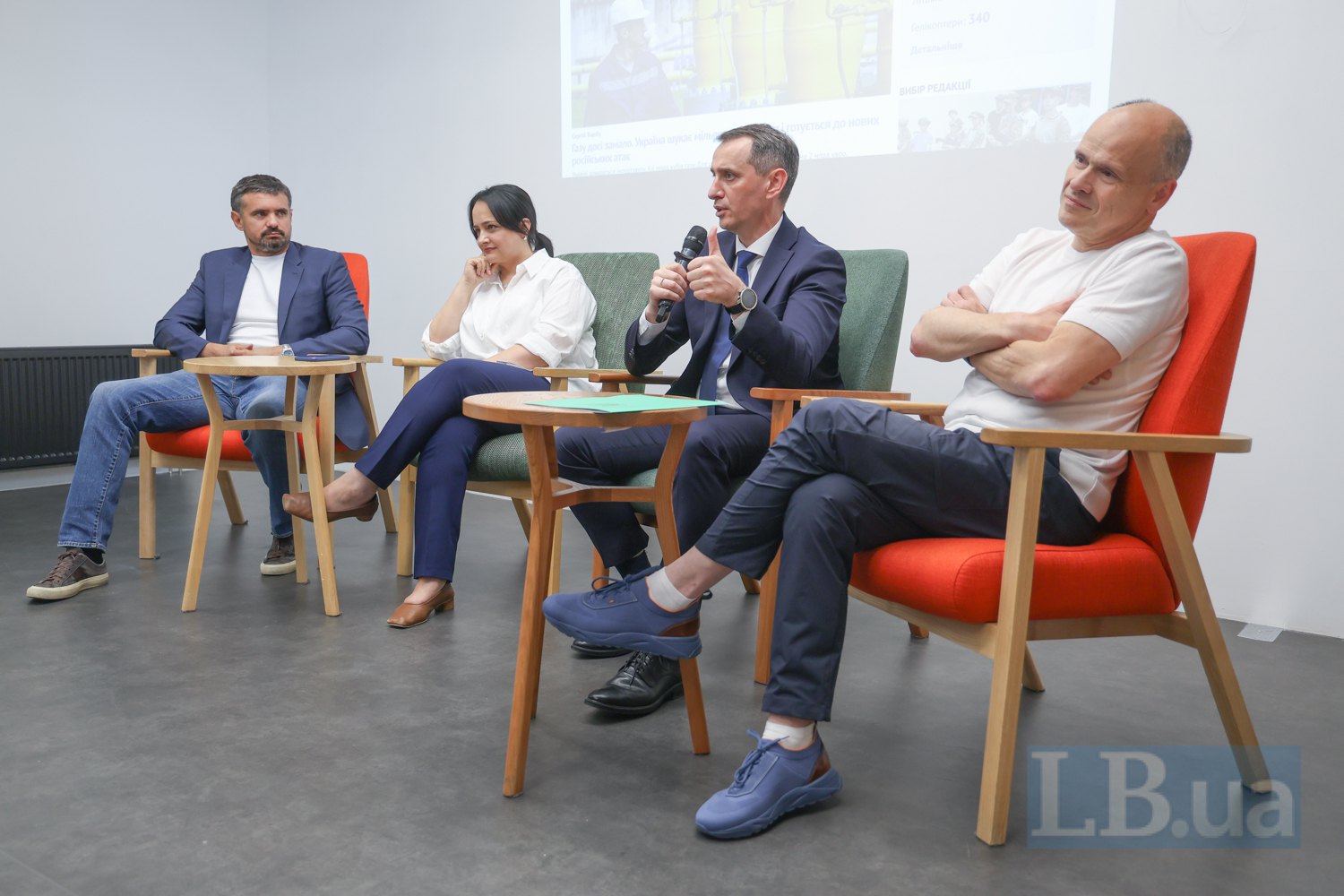
"After the KROK (unified state qualification exam for medical students) and OSKI (objective structured clinical exam), the appropriate score is determined, and you choose your speciality and internship location, a budgeted vacant position that allows you to be employed in the future.
If it is not possible to acquire the necessary competencies there, an individual plan is drawn up with the hospital where the person will undergo their internship and with the educational institution where the full-time internship cycle is conducted," the minister noted.
About 50 vacancies in the unified internship distribution system were submitted by the private clinic Dobrobut, noted Oleksandra Mashkevych, chief medical director of Dobrobut, during the discussion.
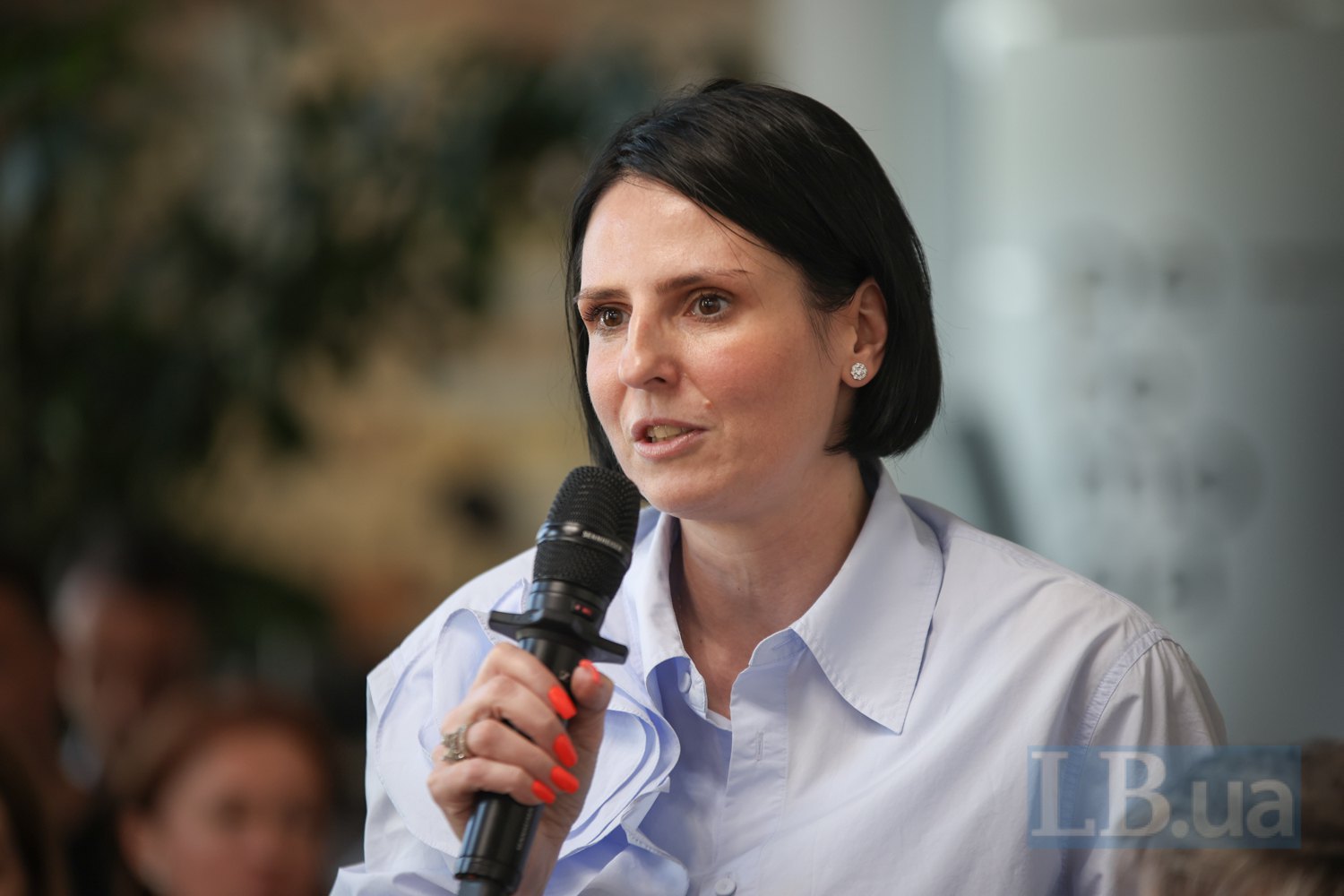
"Our interns receive a high-quality education and have the opportunity to gain the best practical experience from the best doctors, but can we count on any support from the state if we do not have all the medical service packages that will pay for the work of supervisors or the salaries of interns under the human resources package," she asked Minister Viktor Lyashko.
"Will there be interns in private institutions? Yes, there will be," the minister replied to the representative of Dobrobut. However, he added that private institutions must have medical guarantee packages for which interns are provided. This is a key requirement when it comes to state orders.
"The state paid for the training of medical workers so that they would come and work in the system. If we are talking about a business that does not work with the national purchaser, then it is slightly out of place in the system," Lyashko said.
At the same time, he also noted that the number of young specialists taken on by the private healthcare system is not currently critical for the training of personnel in the country. Instead, a large number of young people are choosing frontline territories. "When asked why, they say it is to learn to do what they want to learn to do. The likelihood of obtaining higher qualifications there is now much higher than somewhere in the rear," the head of the Ministry of Health emphasised.
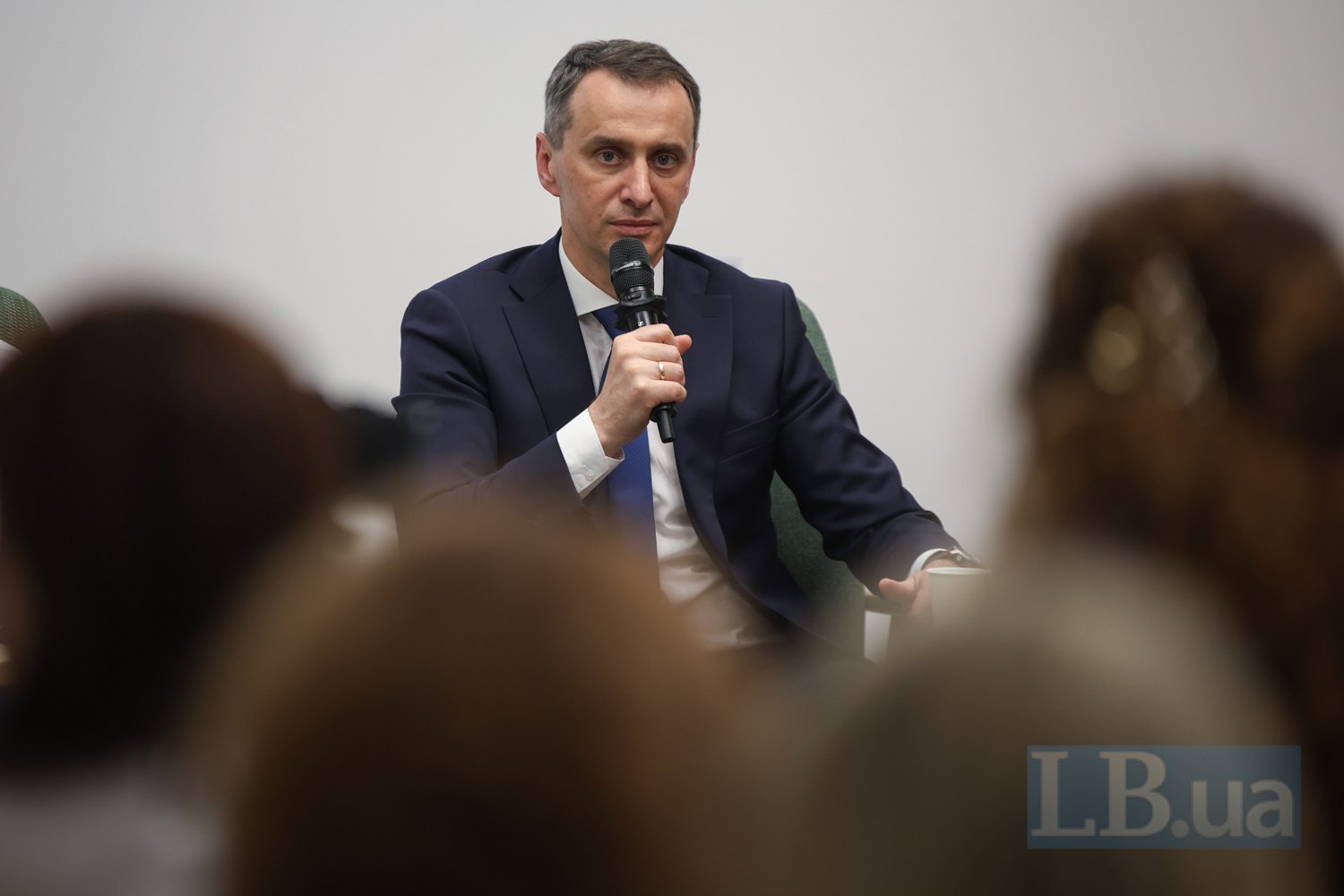
Will there be changes in the educational requirements for nurses or optometrists?
In the context of training medical personnel, Nana Voytenko, rector of the Dobrobut Academy, asked Viktor Lyashko whether the educational requirements for mid-level medical personnel would indeed be changed. She referred to the preparation of a relevant bill, according to which nurses or optometrists will have to obtain at least a bachelor's degree [currently, a secondary medical or incomplete higher education is sufficient for them].
"We all understand that this will further widen the gap that exists in the shortage of nurses and optometrists. When I asked representatives of the ministry about this, they told me: 'We have to move towards Europe somehow'. But this is not the case, because each European country has completely different requirements.
If the relevant law is passed, vocational colleges will close these specialties because they will not be able to meet the licensing requirements. The government's policy is to strengthen vocational pre-higher education so that after ninth grade, people can obtain a profession and be able to work and pay taxes at the age of 18," said Nana Voytenko.
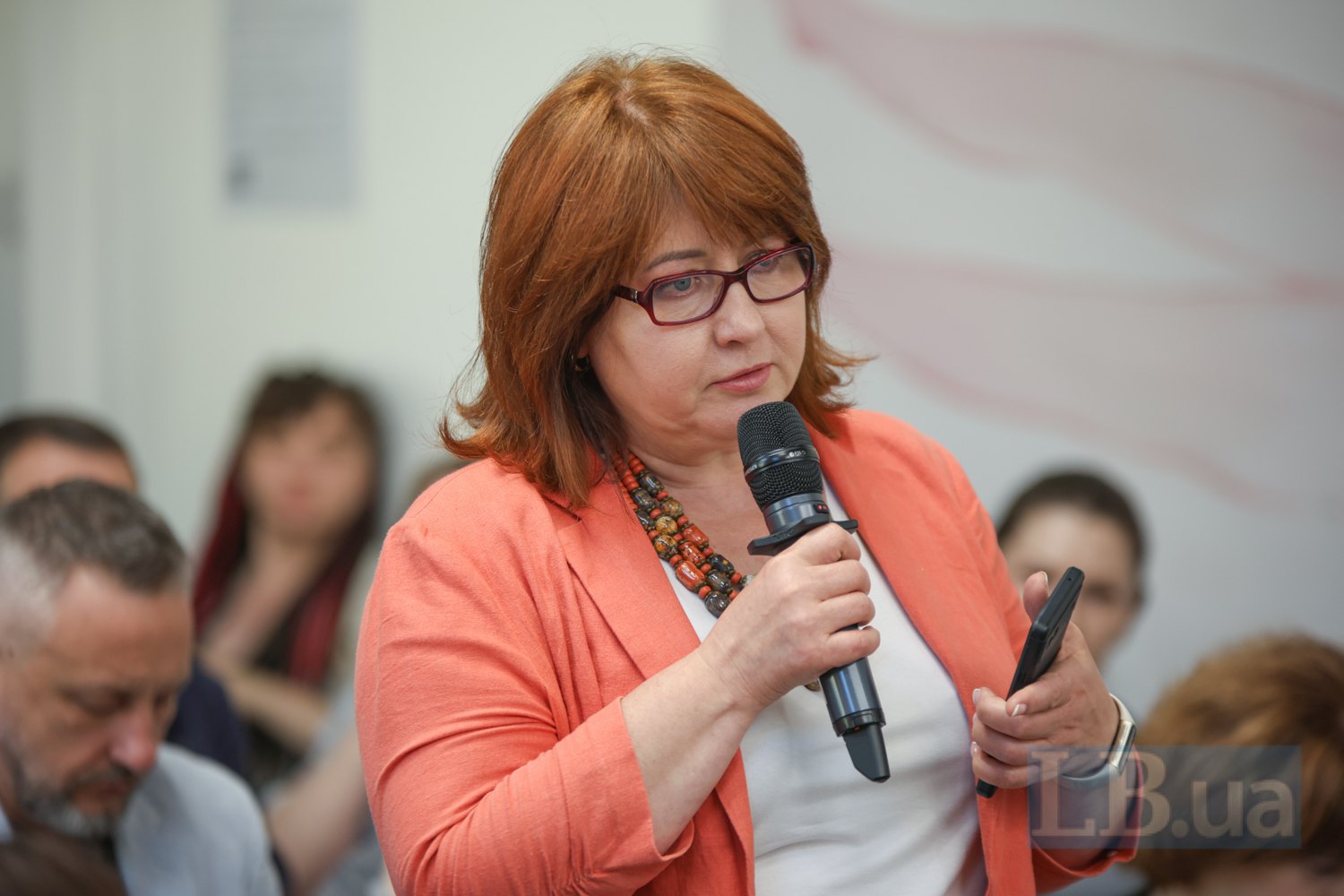
The Minister of Health responded briefly: no political decision had been made regarding optometrists.
"This is a matter for experts, so I cannot comment on it today. I have not yet discussed this with anyone," said Lyashko.
The problem with patient verification
Discussions about the need to implement an electronic healthcare system – a central database – have been ongoing since 2018. It is essential to understand the demand for medical services and how many people receive them, so that the National Health Service of Ukraine pays for real services and real patients, explains Nataliya Husak, head of the National Health Service.
Verification of all patients and services in accordance with existing state registers is also a requirement of international partners, who, after the full-scale invasion, are financing the entire medical guarantee programme and want to understand what they are paying for. All audit companies' conclusions contained relevant recommendations.
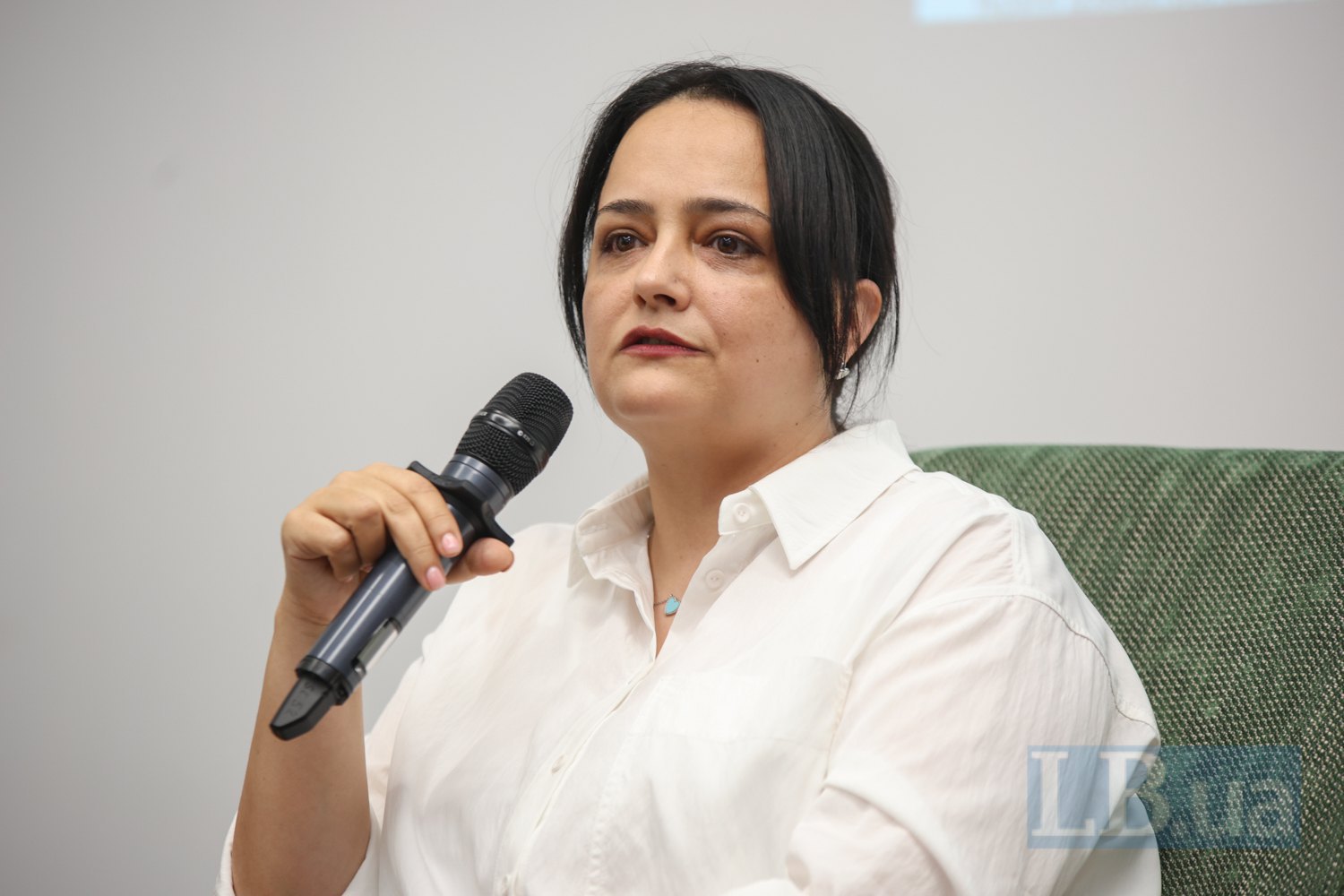
Verification was postponed three times over seven years, until finally it took place on 1 July. However, more than 870,000 children are still not identified in the system. This means that doctors will not be paid for treating them. Most of them are either abroad or their parents believe that the state should provide them with medical care anyway, says Husak.
"As of 1 July, 89% of children, or 95% of patients (30 million out of 35 million registered), have 'successful verification' status. This indicates that the system inspires confidence not only among international partners who finance the medical guarantee programme, but also among our main stakeholders – the Ministry of Finance, the Ministry of Health, and law enforcement agencies. This is important because this trust will be measured in terms of the amount of funding that may be additionally allocated in the coming years," explained the representative of the National Health Service.
She expressed hope that most of the unconfirmed patients will still pass verification. For the rest, solutions are being developed with experts. One of them is cooperation with the Ministry of Social Policy, which also verifies social payments and has a mechanism for suspending them if a person does not physically come to the Pension Fund and confirm their identity.
About medical self-government
Currently, the draft law On Self-Governance in the Field of Health Care in Ukraine has no chance of being adopted in the second reading, stated Mykhaylo Radutskyy, MP and Chairman of the Verkhovna Rada Committee on National Health, Medical Assistance and Medical Insurance. In fact, he divided the chamber, because deputies are under pressure from representatives of the medical sector.
"We have always had many such pseudo-leaders in medicine, some international associations, which will become unnecessary with the adoption of this law," Radutskyy explained. "And I once asked a respected person who used to be a leader in the healthcare system why he was against [self-government]. And he said, 'Because doctors themselves will finance it by paying contributions.' At that time, the specific figure had not even been discussed. Or, 'I won't vote for it because the doctor in my district says it's bad.'"
At the same time, the MP notes that some of the sticking points have already been resolved, and the advocacy of Healthy Decisions has helped to find supporters and even common ground with European Solidarity party, but at the moment, this bill will not even pass the committee.
It’s a paradox: in posts, comments and the media, doctors complain about the Department of Health and the Ministry of Health, saying that they are all bad, that they don’t manage properly. They were offered: take control yourselves, don’t wait for the Ministry of Health to determine whether you are a good neurologist or a bad one. Determine this among neurologists, allow him to practise his profession. Take away the licensing authority,” says Radutskyy.
Health Minister Viktor Lyashko called the situation in which the authorities are trying to organise medical self-government unique.
"The issue of self-government in the medical professions always comes up from below. The demand to do this comes from doctors. And we have the feeling that the authorities are imposing on them that the time has come to organise themselves," the minister concluded.
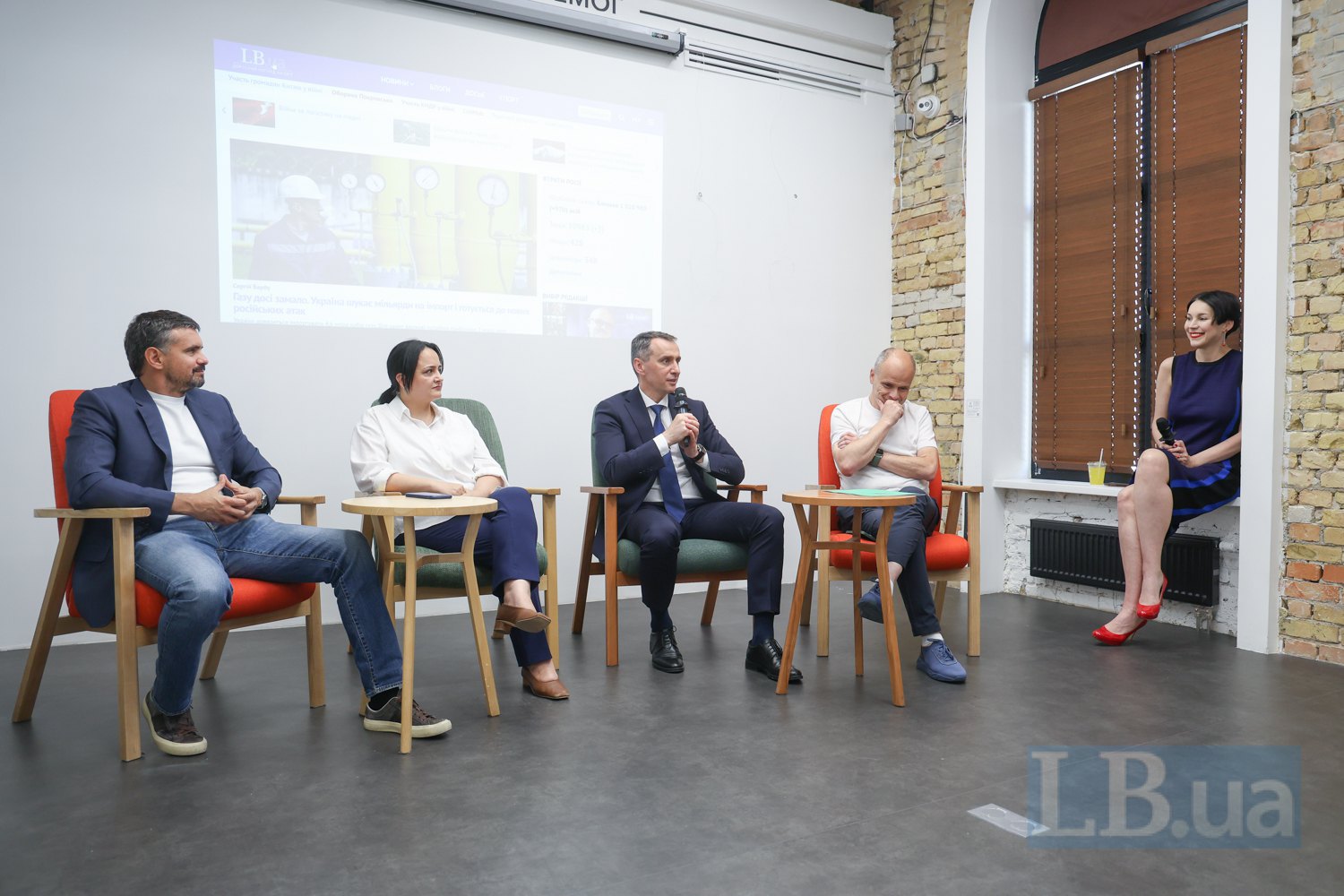
Private and public
The discussion on the underestimated role of private medicine in the healthcare system was initiated by Serhiy Orel, CEO of Dobrobut.
"Over several years of war, our company has paid more than 2 billion in taxes. It has provided more than 260 million in free assistance to military and civilian personnel. We have more than 140 mobilised employees, and the company pays them a portion of their salaries, which amounts to tens of millions per year.
The company has many social programmes. It provides large discounts to military personnel and their families, as well as to IDPs. We have a higher education institution, the Dobrobut Academy, where we train interns and doctors. Incidentally, more than 90% of last year's interns stayed on to work for us. So what else should a private medical business look like so that the state does not refer to it as a private? appealed the CEO of Dobrobut.
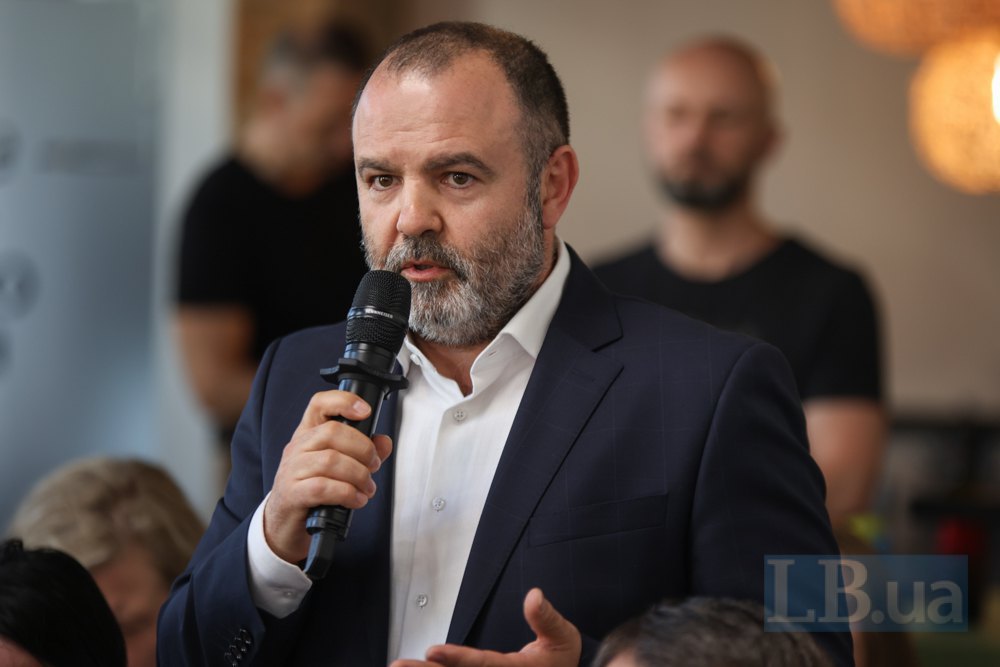
"In my opinion, we are restoring the dignity of the profession for doctors and providing good services to our population. But I would like the state to change its attitude towards private medicine. What else should the medical business be like for attitudes towards it to change?" the head of the private hospital network asked the Minister of Health.
Ihor Liski, a businessman and chairman of the supervisory board of the investment company EFI Group, which owns the Medychna Zirka and Miy Likar clinic chains, spoke out in defence of private medicine. He believes that in the course of implementing medical reform, the Ministry of Health is focusing mainly on state medicine, leaving private medicine out of the picture.
"I believe that private medicine will help change the Ukrainian healthcare system, because it often means faster solutions, newer technology, equipment, new approaches, and so on. Look at Ukrainian dentists – they are at a level that is often not found in America. And I would like to see this level in every industry," says Ihor Liski.
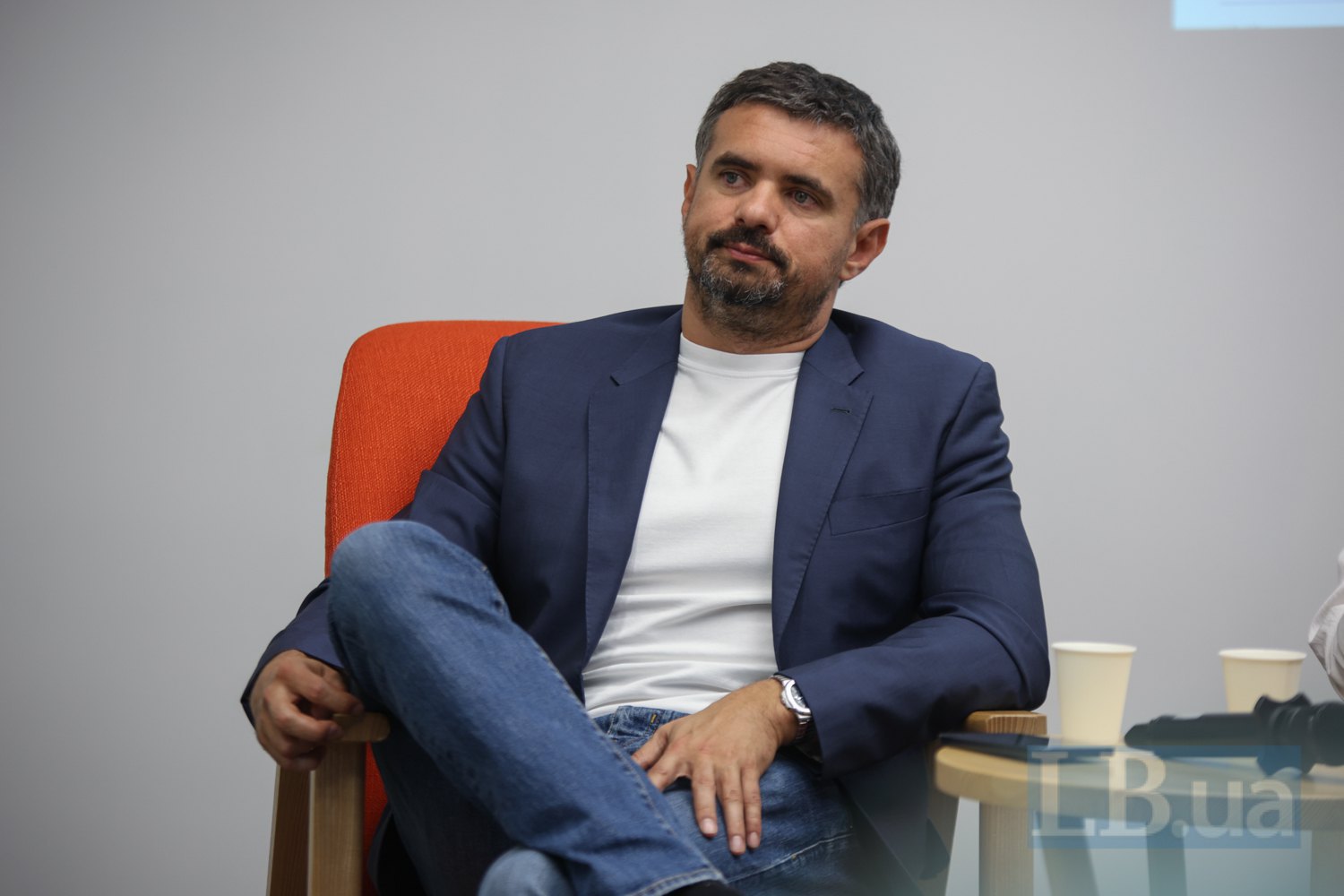
Kateryna Nikolayenko, chair of the supervisory board of the Medical Star chain, raised the issue of the unfair distribution of humanitarian aid, which in fact does not reach private individuals.
"If we provide services on an equal footing and with full responsibility, why can't we count on being provided with generators, refrigerators for vaccines, medical supplies, rapid tests, etc.?
We believe that it is necessary to create a clear and transparent mechanism for the distribution of humanitarian aid and technical assistance provided by international partners, so that the focus is not on the form of ownership, but on the workload of the medical institution and the patient, who needs to renew their declaration with the same private institution, under the same conditions as with a municipal institution.
I believe that medicine is not a field for competition, but a field for cooperation. And only together, by combining the efforts of municipal, state and private institutions, can we achieve our common goal," said Kateryna Nikolayenko.
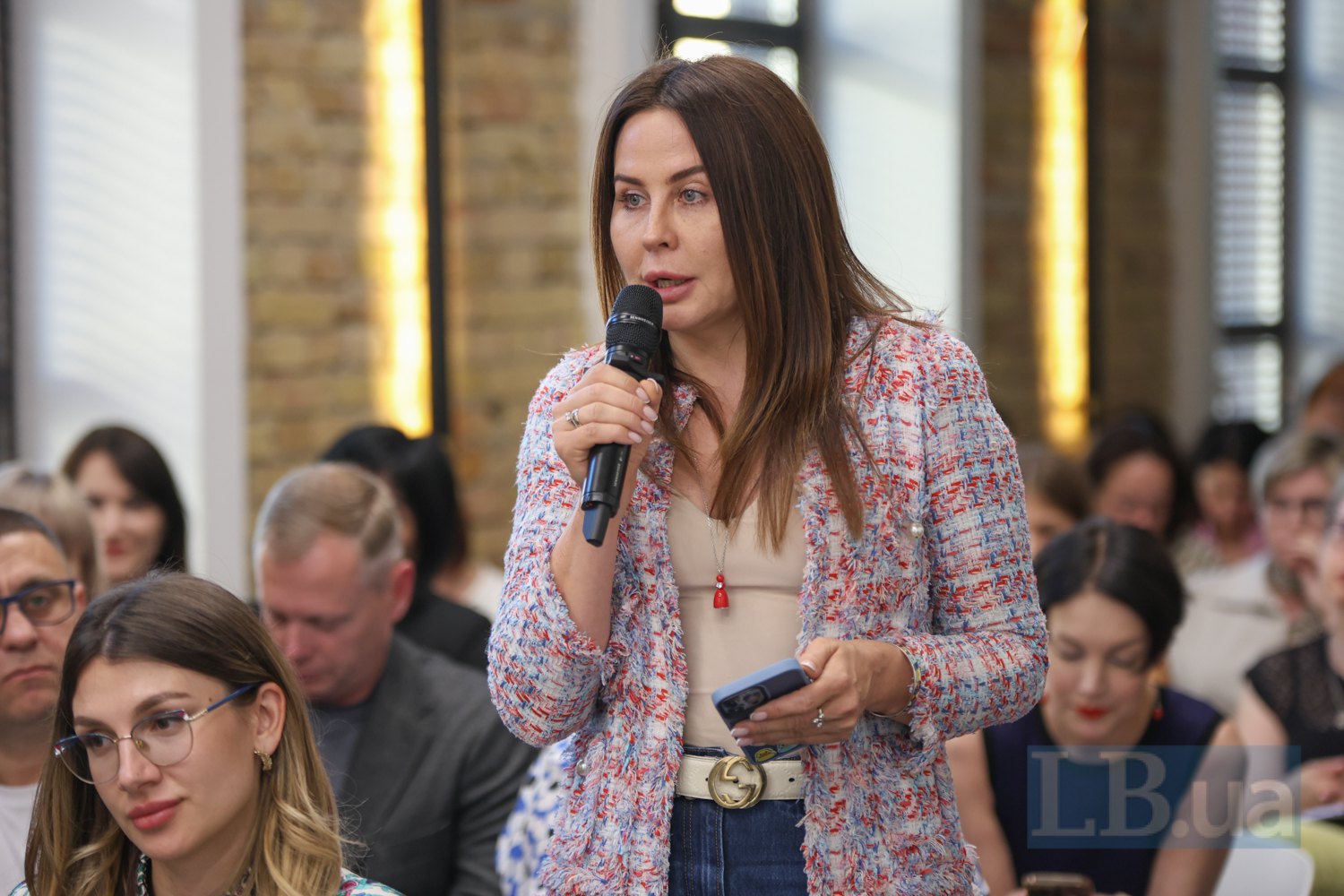
Refusal to compete, replied Minister Viktor Lyashko, negates the whole point of medical reform. Because its main idea, the head of the Ministry of Health reminded, is that money follows the patient, institutions begin to compete for him, improving quality and service. Without competition, the minister is convinced, the development of medicine will be weak. Of course, it is impossible to ensure competition throughout the country, but it should be a stimulus for development, Lyashko noted.
That is why, the minister emphasised, private hospitals should contract with the National Health Service as much as possible.
"Then the patient will understand that they will receive the same service as in other institutions, but you will win with your service, loyalty, processes, and organisation," the minister said.
He added that the state is potentially ready to help all medical institutions on equal terms, regardless of their form of ownership, as long as they are service providers, i.e. have a contract with the National Health Service of Ukraine.
NHSU Chair Nataliya Husak stated that primary care and rehabilitation are currently the most interesting areas for private clinics, and that the NHSU has "enough tools to make them feel comfortable in this market." For the most part, private family doctors are quite competitive in the medical field.
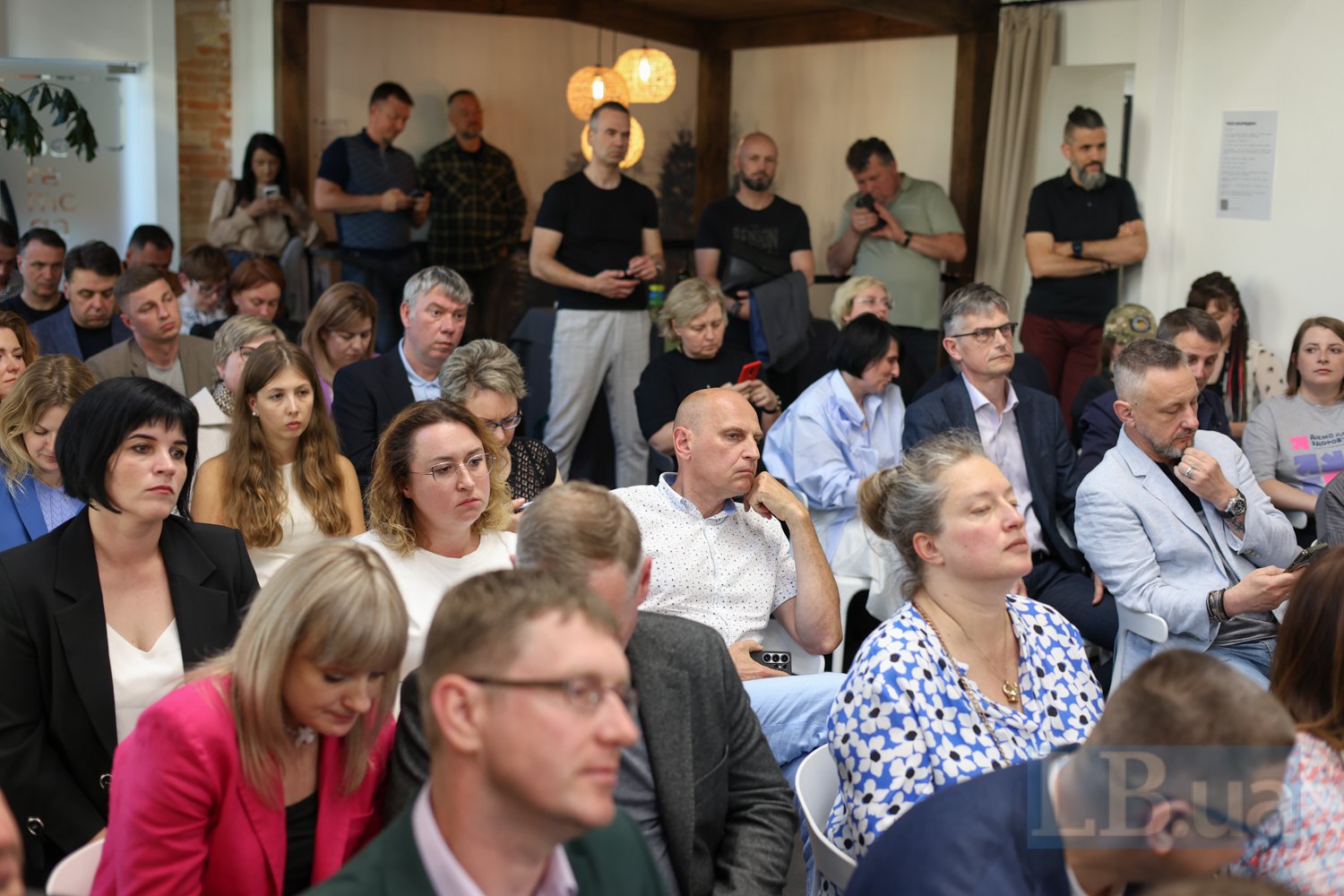
"At the same time, when it comes to the balance between municipal, state and private systems, I don't like the discourse that we should somehow single out the private sector," said the head of the NHSU. "It seems to me that after five years of reform, we have models in the municipal sector that the private sector should strive to emulate. We need to be honest about this as well."
What the minister said about the CT and MRI story
Minister Viktor Lyashko considers the findings of the investigation, which showed that a quarter of the CT and MRI scanners, on which 2.3 billion hryvnyas were spent in 2023–2024, are still not working, to be confusing.
"I will say that 242 CT scanners are working today, and everyone will remember that 62 purchased ones have not been put into operation, and not only CT scanners, but also magnetic resonance therapy machines, and no one will look at the contracts, when they were concluded, when the funding was provided, when they should be delivered. No one will understand how expensive equipment is installed. And whether the conditions are the same for private business and for state institutions. Because state institutions have to go through a huge pile of procedures, while business, knowing the brand and model, hires a builder tomorrow and starts building. Never compare the terms of commissioning expensive equipment that requires the development of design and estimate documentation," the minister said.
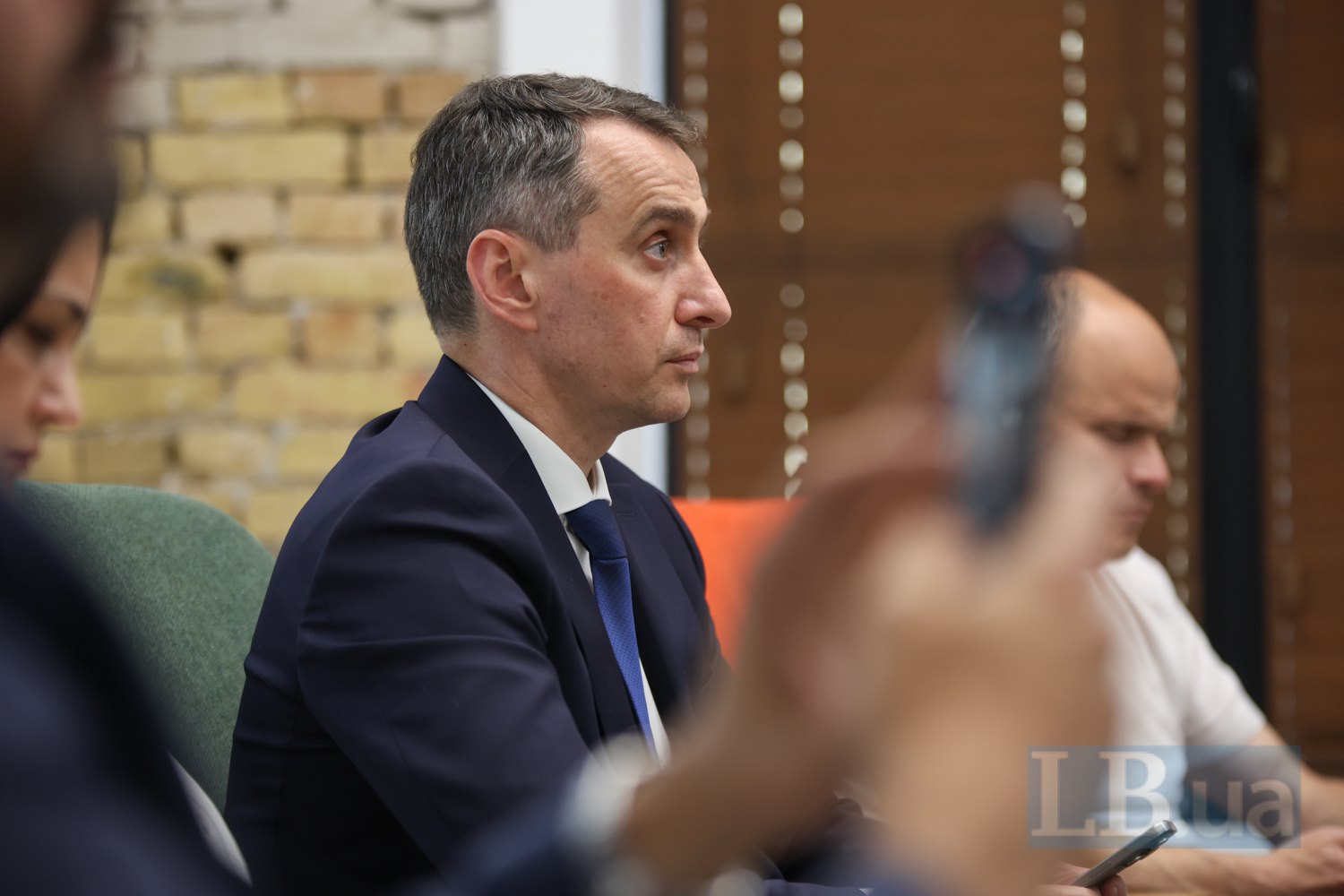
This could have been avoided, according to businessman Ihor Liski, if the ministry had made an equal offer to everyone: "Say, we are ready to finance a tomograph or some service, Medychna Zirka, Dobrobut, are you ready? Because when they buy a CT scanner and take it to a place where it just sits idle and doesn't work, it's inefficient," says Liski.
In addition, he believes that this is not competitive, because private hospitals have to purchase expensive equipment at their own expense.
"And I can't compete in providing services because the state hospital actually offers them for free (it doesn't have to pay for the equipment) or for a bribe," notes Liski.
In his opinion, this situation demonstrates that the Ministry of Health should formulate policies rather than engage in economic activity, design and develop a strategy that will generate healthy competition.
"The minister or the head of the National Health Service should not have to think about whether a tomograph is working somewhere, check whether it has been turned on, or whether Uncle Vasya unplugged it when he left. If a policy is formulated, it will make the management of hospitals – private, state-owned, municipal – more reasonable," the businessman believes.
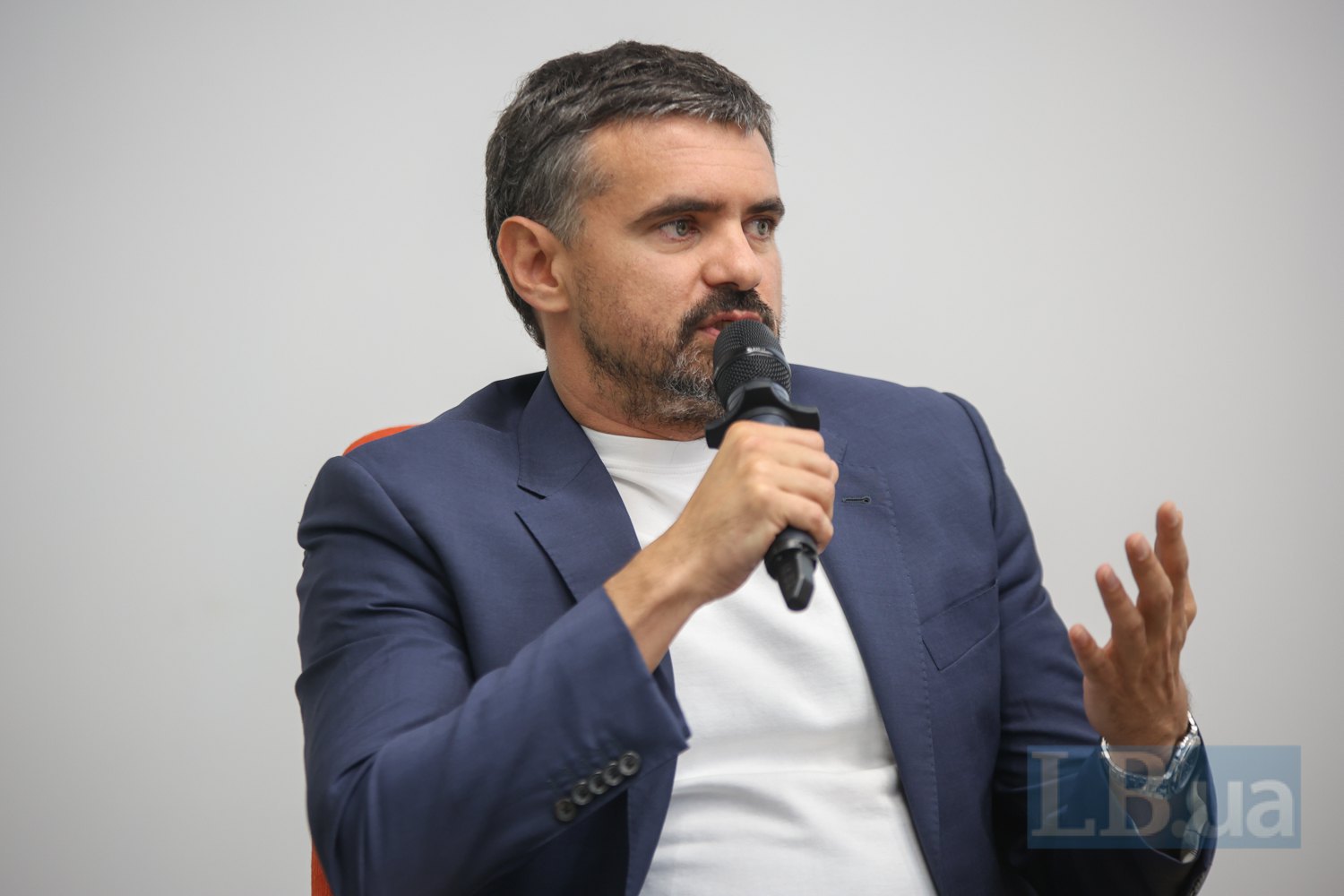
Prospects for insurance medicine
It is no longer possible to view medical insurance as a model case for countries that introduced it decades ago, such as Germany, according to Health Minister Viktor Lyashko. The Balkan countries followed this path, introducing employer and employee contributions, but now, due to the deteriorating demographic situation, their funds are already declaring bankruptcy and are being subsidised from the state budget.
The demographic situation in Ukraine is even worse, so the question is who will fill the health insurance fund, which is supposed to replace the National Health Service, the minister noted.
In the current conditions, he considers the NHSU to be the optimal model.
"Three key words symbolise the progress of my team and me: accessibility, quality, and free medical care for patients. Accessibility is both territorial and economically justified," Lyashko said. "We have created the National Health Service of Ukraine (purchaser). We understand what funds the state can allocate at this time. This is what accessibility should mean for us, i.e. economically justified tariffs that we cover as a state."
Since the state cannot cover all services – and is honest about this – the minister reminded that the NHSU has launched a real paid service, according to the codes of the National Health Service of Ukraine in accordance with certain classifiers.
"Voluntary medical insurance should continue to develop. There is a basic guaranteed level of medical care that the state covers for everyone. It should improve every year, but there are also services that need to be insured. We will continue to develop voluntary medical insurance, including pharmaceutical insurance, which should cover people's requests for certain drugs for outpatient treatment that are not included in the affordable medicines programme," Lyashko said.
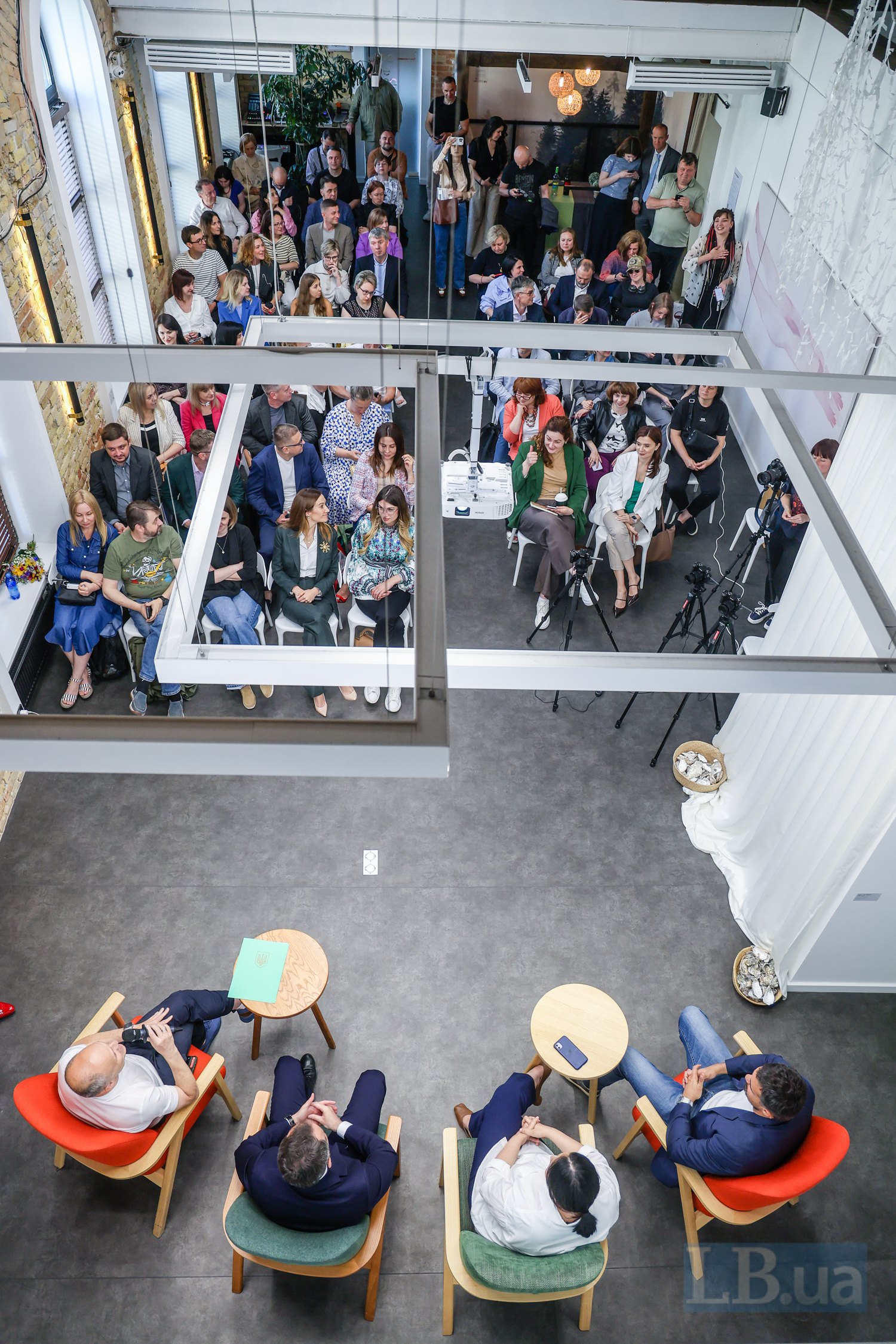
According to the head of the National Health Service, Nataliya Husak, the NHSU, as a purchaser and a medical guarantee programme, is a prototype of compulsory medical insurance.
"But we have certain tools for purchasing medical services that have not yet been fully implemented in our segment. I very much hope that the National Health Service of Ukraine will purchase highly specialised medical services, such as cardiac surgery, for example. Not exclusively through selective contracting and concentration of services, but also by standardising the number of services. This will also give the market a boost, and it is also a tool that we are starting to use little by little. For example, in the ninth package of outpatient care in 2025," said Husak.
Once one of the biggest supporters of insurance medicine, MP Mykhaylo Radutskyy also considers it unrealistic to introduce it in Ukraine.
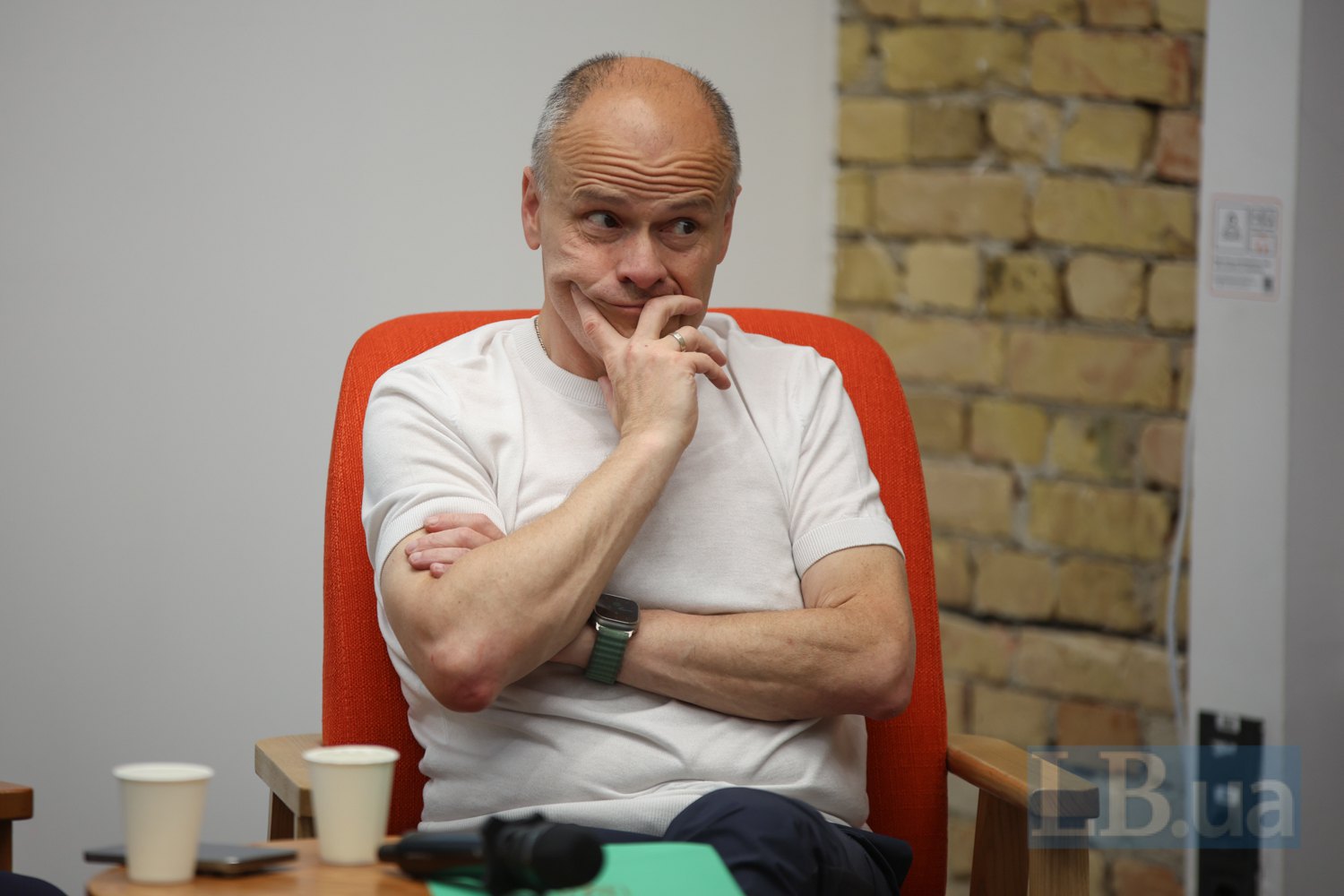
"Even if there were no demographic problem, as long as there is a high percentage of undeclared wages in the country, this insurance fund will remain empty, even with a sufficient working-age population.
In 2019, I ran [for parliament] with the slogan "Insurance Medicine." European partners reassured me and the president, because his re-election programme also mentioned this: 'Friends, you have 60% of the workforce receiving undeclared wages. What insurance fund are you talking about?'" the MP concluded.
About reference centres and expert councils
The national strategy for the control of malignant neoplasms provides for the creation of reference centres to provide medical care to children with cancer from all regions of Ukraine. Back in the summer of 2022, experts developed the basic criteria, which were to be approved in 2024, but as of the second quarter of 2025, this has not happened, says Oleksandr Lysytsya, head of the bone marrow transplantation department at Okhmatdyt. Meanwhile, about 500 children are diagnosed with cancer every year (before the war, there were about 1,000).
In addition, Oleksandr Lysytsya adds, laboratory diagnostics, which are provided for in the medical guarantee package, have fallen by the wayside in the current system; the conditions for costly molecular genetics research are not being fully met.
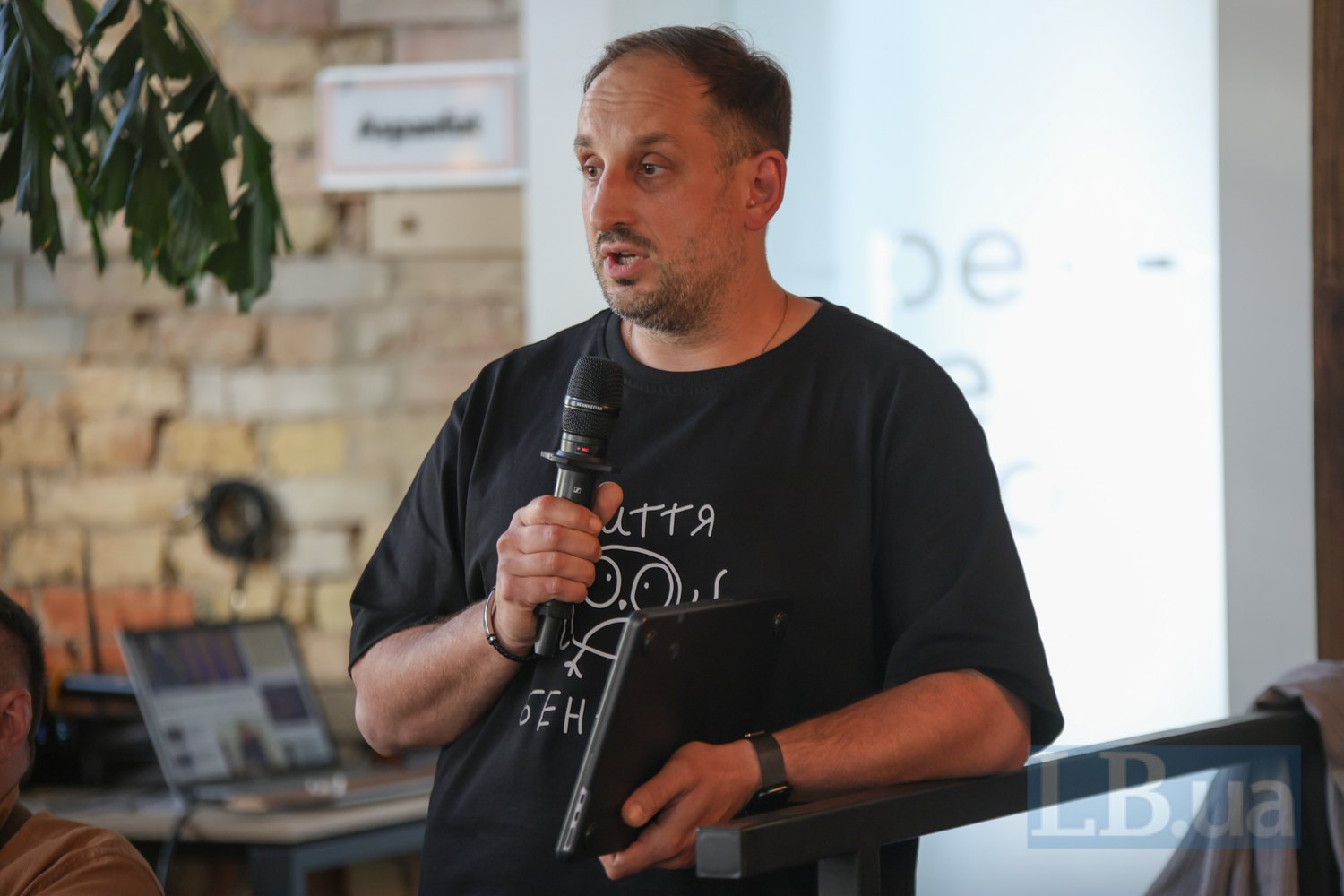
"Last year, we and some respected public figures wrote comments on the medical guarantee package for haematological and oncological inpatient and outpatient care, but they were ignored. Only this year have some things been fixed," the paediatric oncohaematologist also noted.
"There is movement," replied Health Minister Viktor Lyashko. "When experts give their opinion, it is followed by public discussion, and a number of questions and discussions are answered by people working in the Ministry of Health. For some reason, everyone is convinced that the Ministry of Health has a huge amount of competence. I sometimes receive text messages asking me to consult a patient and advise them on whether their treatment is effective or not. I am the Minister of Health, an administrator. In most European Union countries, ministers do not even have a medical education."
Regarding reference centres, Viktor Lyashko noted that "the document is being worked on and will be completed," and reference centres for orphan diseases have been approved. But it is important, the minister added, not to confuse the concept of a patient's route to quality treatment for paediatric oncology with the concept of a reference centre for paediatric oncology.
"We must ensure that treatment is both geographically and innovatively accessible. And as Minister of Health, I must not overlook these things at this particular moment," Lyashko noted.
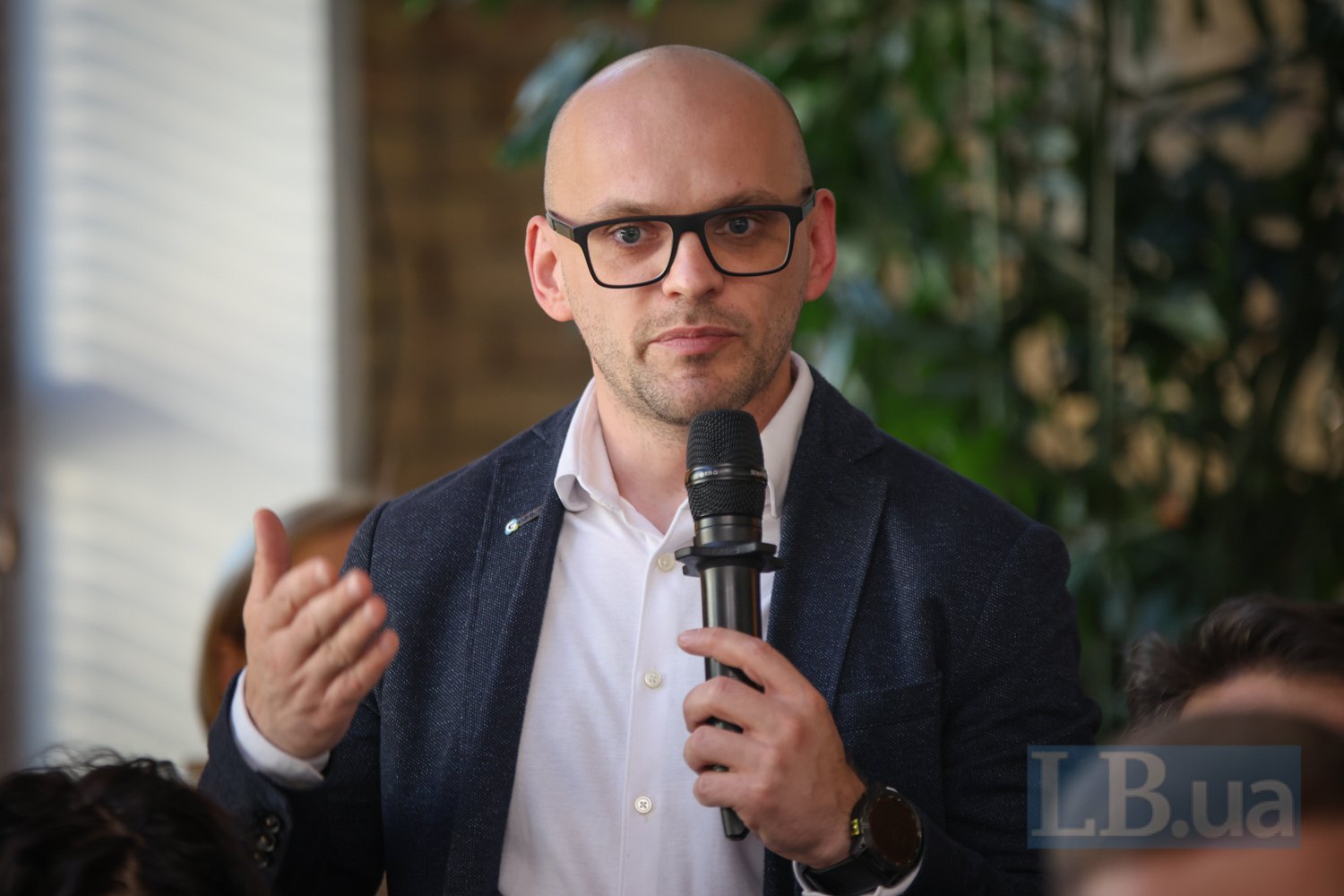
A similar question was posed to the head of the National Health Service of Ukraine by Vyacheslav Kopetskyy, a surgical oncologist at the Kyiv Regional Centre. It concerned the composition of expert councils responsible for developing specifications and requirements for medical guarantee packages.
"In 2024, these expert groups were simplified by forming an expert council, where only three people represent the field of oncology. And it is obvious that their expertise is not sufficient for the normal content of oncology packages. Are there plans to restore and involve the broader medical community, specifically providers, in the formation of requirements and specifications?" the doctor asked Husak.
"I don't think that the experts currently represented on the expert council are inadequate. Why are there no expert groups? Because we saw that in some cases, expert groups lobbied for interests other than those of patients, with a flavour that I would rather not mention here.
Therefore, we enlisted the support of international partners, experts who transparently selected the expert council, but we gladly accept all proposals that come within the framework of the requirements and specifications for the National Health Service of Ukraine," argued Nataliya Husak.
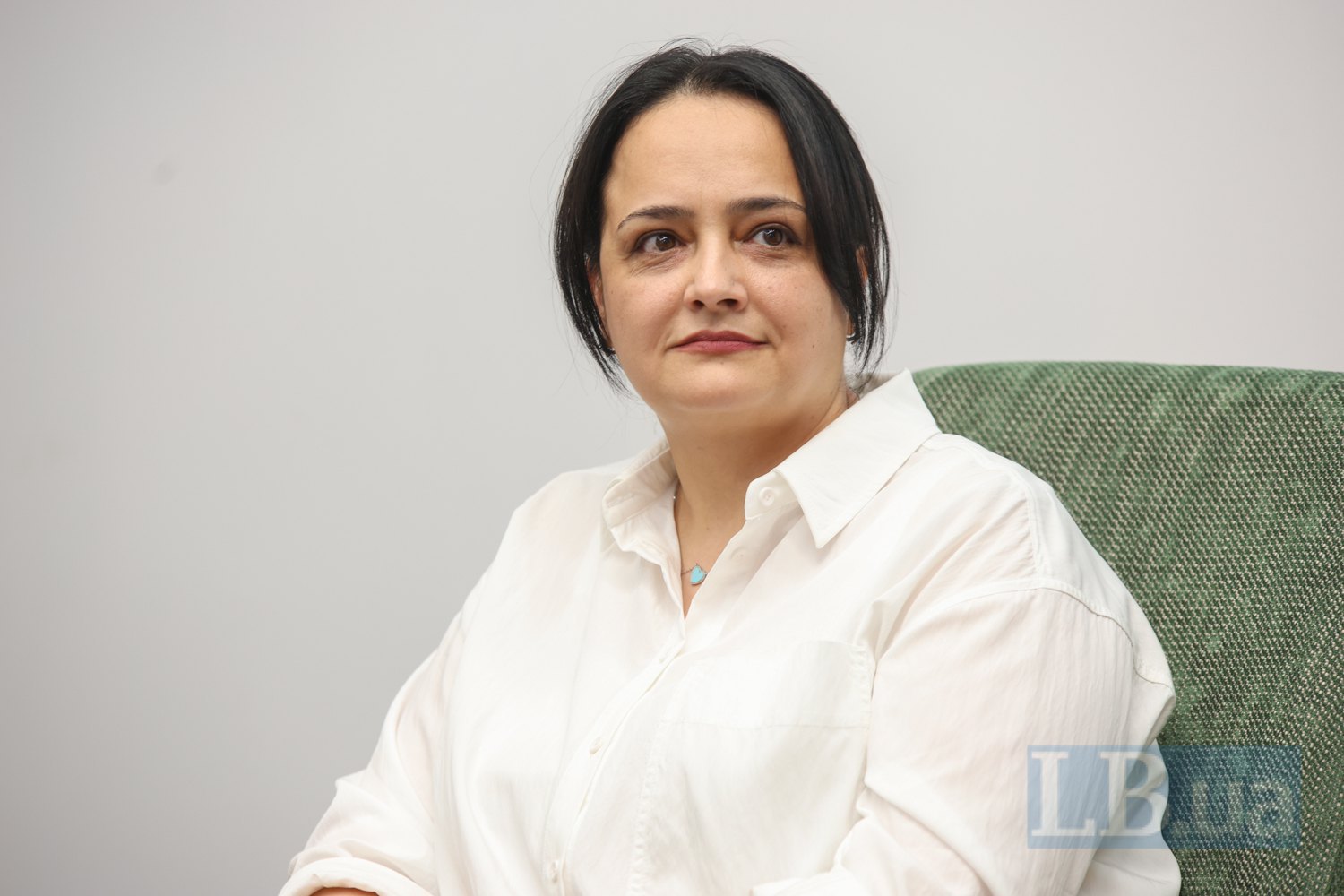
She also added that oncologists have now sent the National Health Service of Ukraine a concept for selective contracting for the concentration of oncology services, including surgical services.
"With regard to expensive laboratory services, the National Health Service of Ukraine is finally beginning to introduce appropriate codes to account for laboratory services more clearly.
We will understand how to normalise the number of services we are ready to purchase, including accounting for and purchasing expensive laboratory services. Perhaps this is a good case for oncology – not to purchase from everyone, but to concentrate, again, in reference centres, individual laboratory tests, even diagnostics," Husak added.
On the quality of psychiatric care
The discussion about the provision of psychiatric care in the country, primarily to the military, was raised by military officer Alyona Hrynko. Citing three specific examples, she stated that patients currently have no understanding of the protocol for even examination, let alone treatment, and cannot receive professional, high-quality psychiatric examination.
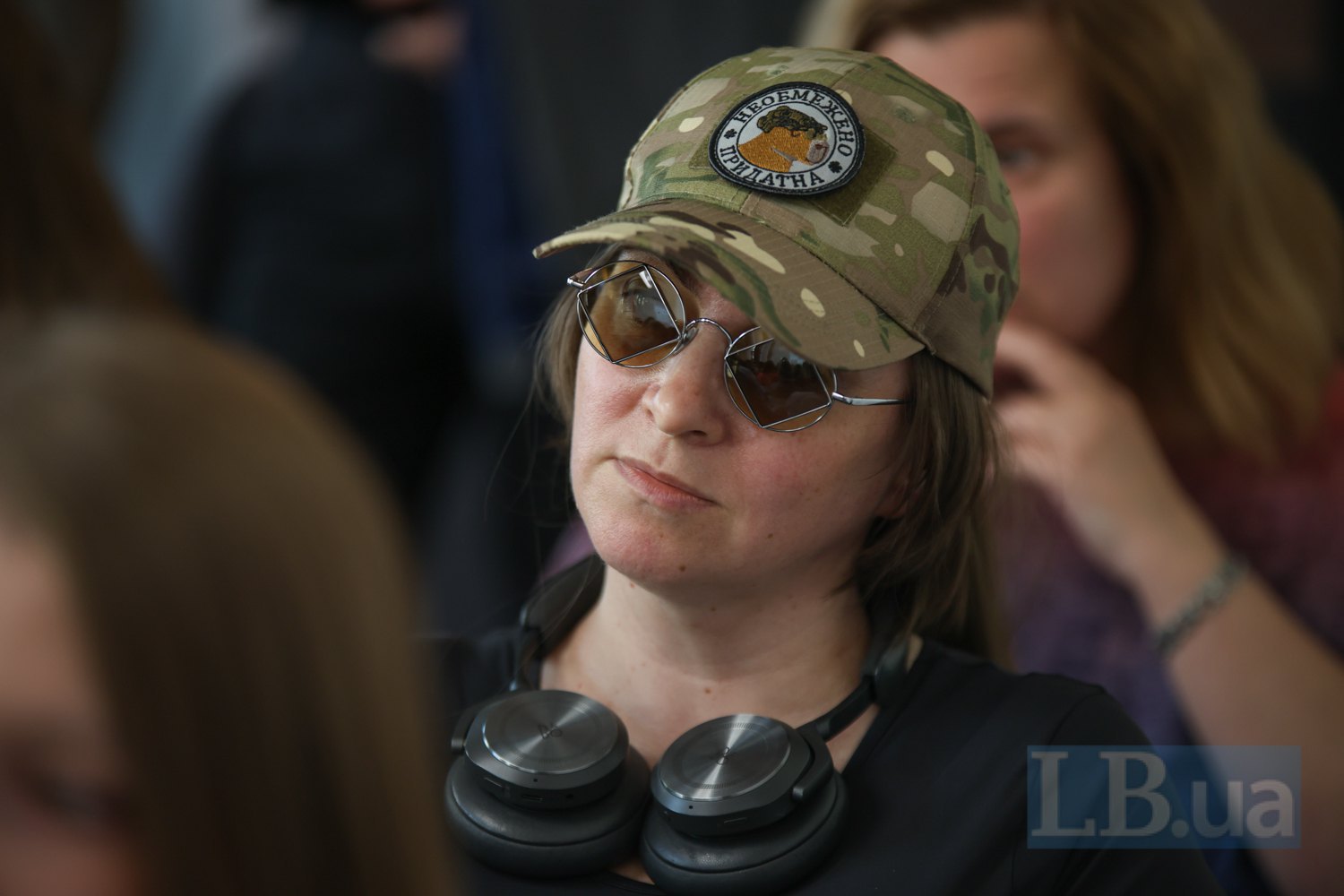
In response, Viktor Lyashko noted that in every industry, one can name dozens of problems "that would overwhelm any specialist." But to draw conclusions about the psychiatric care system based on only three cases means to negate the work that is being done 24/7 at an extremely difficult time for the state, amid enormous challenges.
He emphasised that each case must be considered individually – there are special groups that visit the sites and investigate.
"You will not find any standards for the provision of medical care signed by me as minister anywhere. And here I refer to the Health Index, section six ("Satisfaction with medical care and perception of health care reforms." – Ed.). Who do people associate problems in the industry with? 80% are convinced that all the problems in their local hospital are the fault of the Minister of Health. And this mindset needs to be changed. Because there is also the issue of ownership, staff, and medical self-government, after all," the minister noted.
Volodymyr Bugrov, rector of Taras Shevchenko National University of Kyiv, said that for eight years now, the university has had an Institute of Psychiatry, headed by Iryna Pinchuk, which, with the support of the embassies of the Netherlands and Lithuania, operates a Mental Health Centre for veterans and their families.
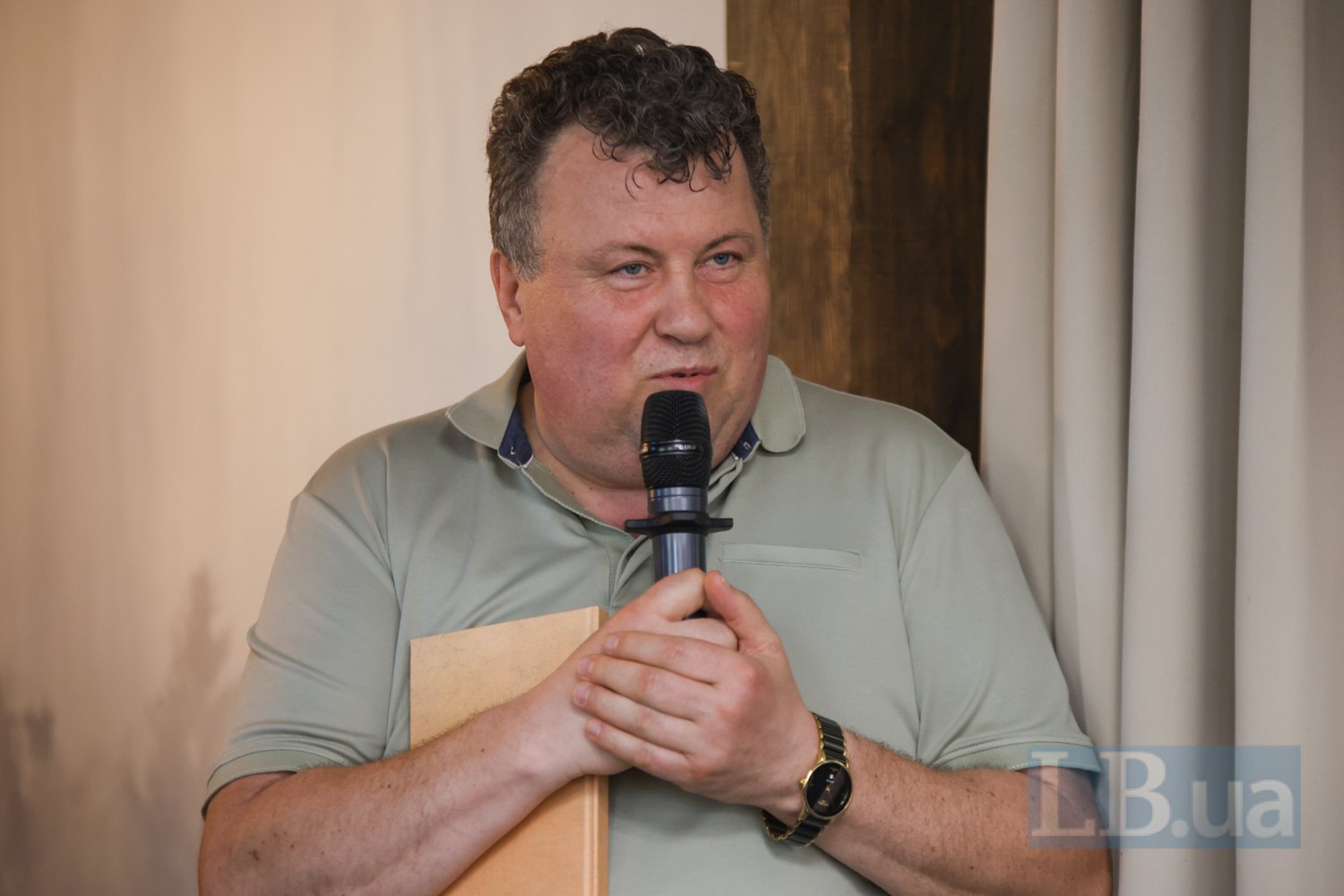
"This is an example of how limited resources can be used to create a high-quality product. There are two doctors of medical sciences in psychiatry, two candidates of sciences in psychiatry, and two candidates of psychological sciences working there. It is supported by the Faculty of Psychology. And this ecosystem is recognised by the NATO Rehabilitation Centre in Birmingham. So, I invite you to visit," said Bugrov.
What the state plans to do with palliative care
"Palliative care is an issue that is extremely important given our demographic outlook. Our population is ageing. Many palliative patients appear because of the war. And the terrible things that are being proposed about separate military palliative care are simply beyond comprehension," says Iryna Koshkina, executive director of the Svoi Charitable Foundation.
Currently, Ukraine lacks comprehensive medical and social palliative care services: patients have to go separately to the doctor, separately to social security, and separately to receive any other services. What can be done about this, asked the representative of the foundation, which helps palliative care patients.
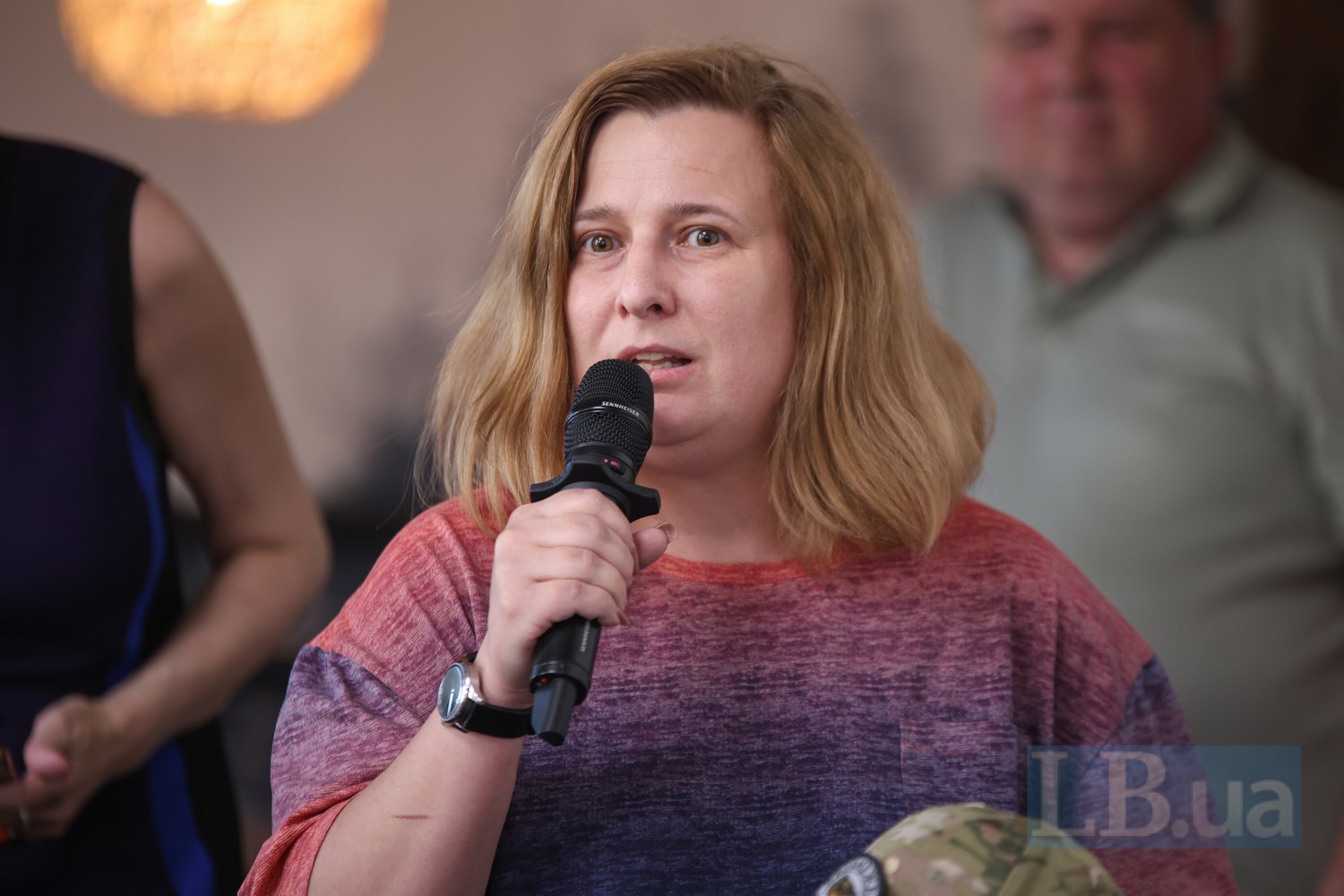
"Palliative care is a medical and social problem. Usually, the healthcare system is the first to step in, implementing one initiative or another, and literally within a few months of implementing this initiative, everyone thinks that it is our sole responsibility.
Palliative care in the healthcare system is the right to a dignified death. No matter how much some people may dislike it. It is long-term medical care, and long-term care also raises the issue of social standards for palliative care," said Health Minister Viktor Lyashko.
He noted that developing palliative care as the right to a dignified death is one of the key tasks of the National Health Service of Ukraine.
"At the same time, we are sending our experts to certain locations and conferences to see what long-term nursing care and medical care look like in European Union countries. In the near future, we will come up with a proposal on how we see it. Not for implementation, but for discussion. We need to gather those who provide such assistance around a round table, and they will immediately tell us what we should not do. But here I would like us to clearly understand and dissociate where medical responsibility lies and where the social component lies," said the minister.
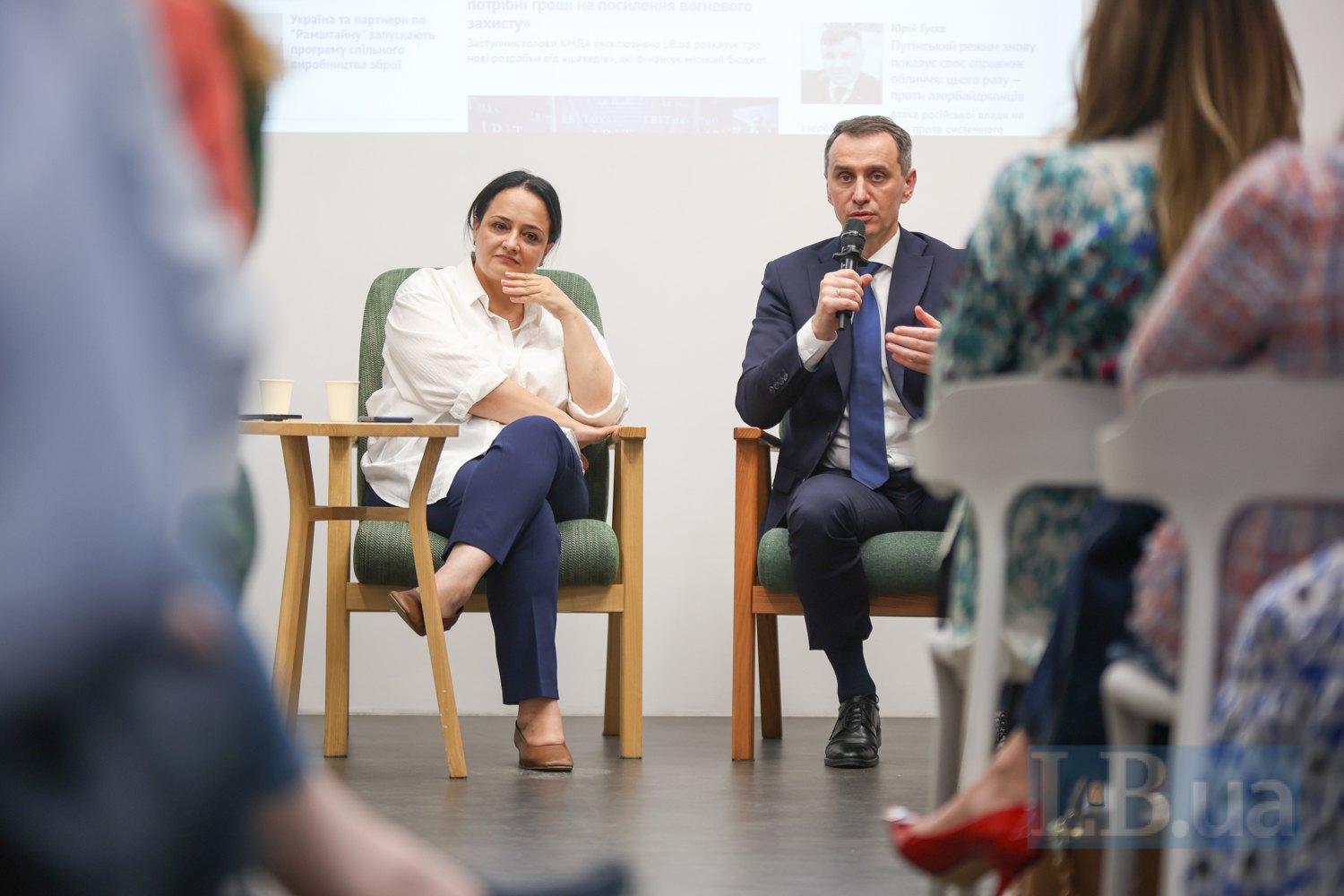
Nataliya Husak, head of the National Health Service, added that this year, for the first time, an analysis of palliative care was conducted, which showed that about 40% of people did not have palliative status, and about 50% received assistance exclusively by telecommunication means.
"We already have a realistic picture of the condition of patients who need palliative care. And, of course, we believe that the rest –such as home care – should be taken over by the Ministry of Social Policy, which has its own standards for social services," Husak emphasised.
Lack of certain medicines in pharmacies
Kateryna Zahoriy, chair of the board of directors of the pharmaceutical company Darnytsya, pointed out the absence of her company's products in pharmacies.
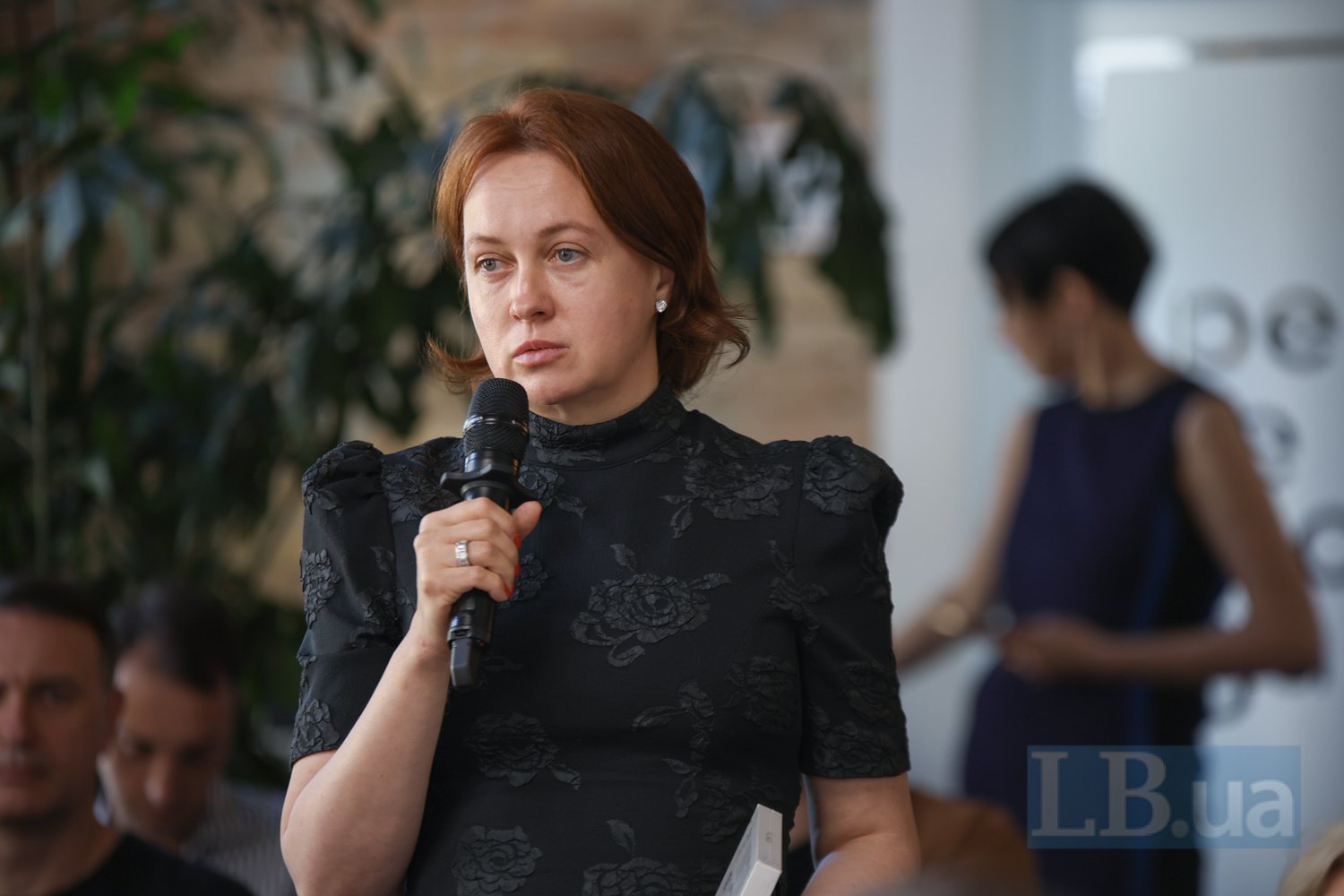
"When I go to any pharmacy as a consumer rather than a manufacturer, I am told that Darnytsya is not sold because the pharmacy chain has decided so. What should we do? Do you, as a regulator and as a ministry, have a solution to change this situation? What are we doing wrong?" the representative of the pharmaceutical company asked the top speakers on the panel.
The minister did not hesitate with his answer: the lowest price will solve the problem.
"As a regulator, we will list the cheapest active ingredient from the national catalogue. We will indicate the cheapest drug registered in the national catalogue for this active ingredient. And such and such a drug at such and such a price must be available in every pharmacy. Therefore, as the state, I ask you: give the lowest price for the active ingredient so that medicines become affordable," Lyashko emphasised.
When asked whether the cheapest drug would be of normal quality, the minister suggested complaining and submitting negative reports to the State Expert Centre through the pharmacovigilance system. Decisions will be made based on the results of this.
The absence of drugs from certain manufacturers is not a violation of the law, added Mykhaylo Radutskyy, head of the Verkhovna Rada Committee on National Health, Medical Assistance and Medical Insurance – everything is on the conscience of the pharmacy chain owner.
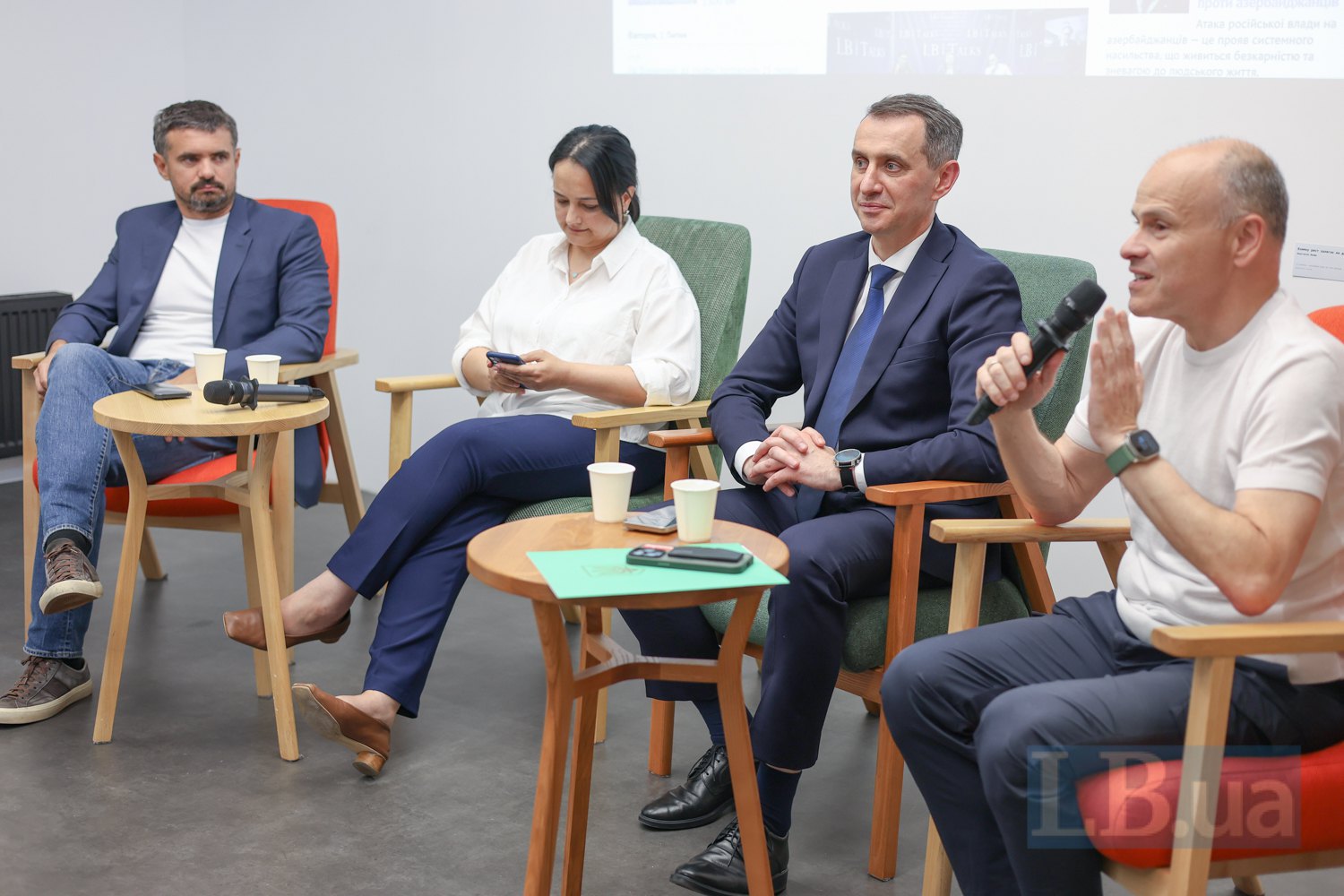
"I understand what is happening with Ukrainian distributors. The market has never been regulated, and now they have decided to regulate it. And everyone is fighting. I believe that you can definitely get the lowest prices in pharmacies... There is another option – municipal pharmacies run by the Pharmacy municipal enterprise," Radutskyy said. "But I hope that these battles, which are now returning to the committee with the Ministry of Health, will end. As soon as the resolutions are adopted, the executor will do everything according to the law, and these issues will disappear."
At the same time, Radutskyy emphasised the high quality of Ukrainian pharmaceuticals at low prices.
"Today, there is a question of when the European Commission wants to end its dependence on Asian manufacturers, and they are seriously considering Ukrainian pharmaceutical plants as partners in filling the strategic reserve of medicines in the European Union in case of any bad situations," said the MP.
Vaccination in pharmacies
The practice of vaccination in pharmacies began last year, with pharmacists themselves administering the vaccines. According to Iryna Voloshyna, a representative of the Academy of Family Medicine, one pharmacist vaccinated 127 people last season, and people abroad are genuinely surprised by this Ukrainian approach.
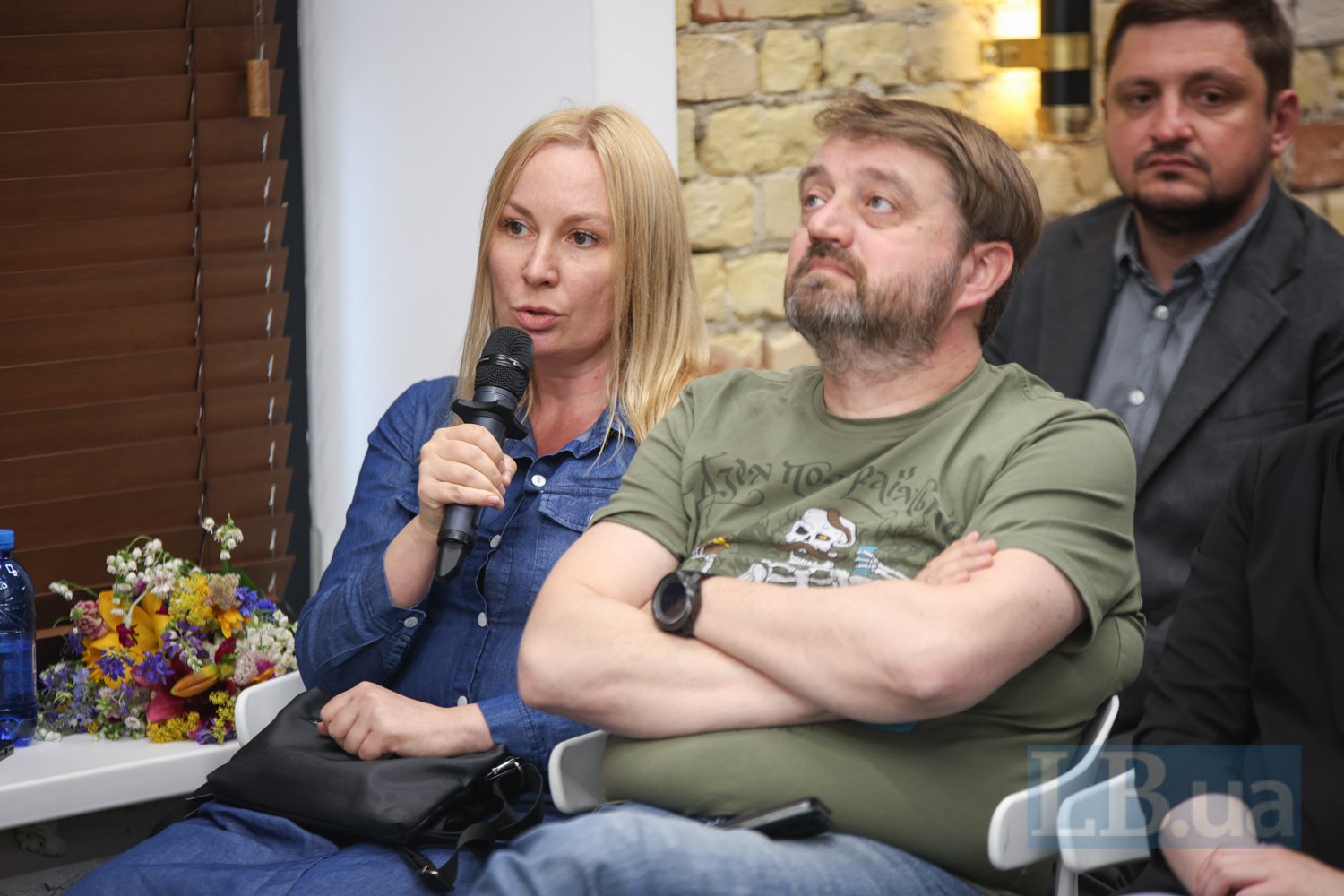
However, Oleksandr Yanyev, director of the legal department at pharmaceutical company SANOFI, notes that this process is currently being slowed down, with no active involvement of pharmacies observed. He is therefore interested in whether there are any obstacles to this practice.
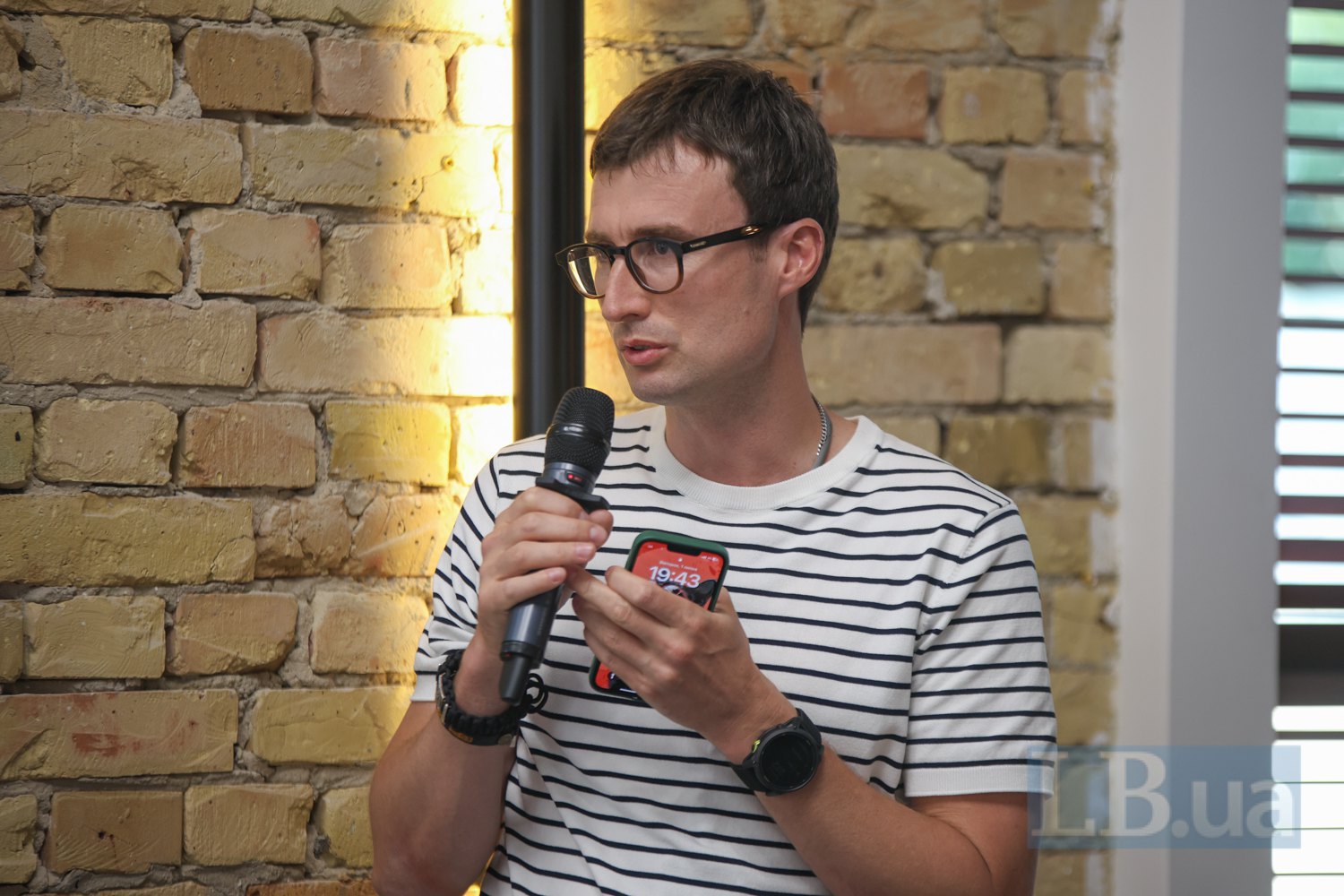
The head of the Ministry of Health, Viktor Lyashko, has spoken out unequivocally in favour of this method of vaccination. He notes that the new flu season will show whether this practice actually works.
In addition, the possibility of reimbursement (full or partial reimbursement to pharmacies for the cost of medicines or medical devices dispensed to patients under the medical guarantee programme) for immunobiological preparations included in the national vaccination calendar is being considered, the minister said.
"But we are modelling everything towards the economy. We need to understand how much the cost of the vaccination calendar will increase if we launch reimbursement, and understand how it will work. We are discussing it," he added.
The success of healthcare system management
And as if to crown the long discussion of relevant issues, Iryna Andreytsiv, editor of the Health section at LB.ua, asked the main providers of medical reform what percentage of high-quality managers, in their opinion, are in the healthcare system – people who are capable of making decisions. After all, today there is an active outflow of personnel from state medicine to private medicine. And not only because of salaries, says Andreytsiv, but also because of greater opportunities for development, better training, working with patients rather than updating data, and so on.

Nataliya Husak, head of the National Health Service of Ukraine, believes that the private sector differs from the public sector precisely in terms of management. And management determines the success of any institution, regardless of its form of ownership. According to Husak, she feels that no more than 20% of managers in the healthcare system are currently successful.
"Unfortunately, these are the people who were leaders at the start of the reform, and they have not been joined by a larger number of people who could run their institutions effectively. We are all to blame for this: we, the expert circles that work with healthcare institutions, international partners who, for some reason, bet on the same people without nurturing other quality leaders over the years. But I think we have recognised this mistake and can move on.
A study by the Health Agency showed that during the war – and we feel this within the framework of partnerships and the implementation of agreements – there has been an outflow of management personnel. We have a significant number of replacements for managers in institutions, especially in the north, east and south. And this certainly complicates the work," said the head of the NHSU.
The problem with the use of funds in the medical guarantee programme arose precisely because of the inefficiency of the management level: medical institutions were given autonomy, which they misunderstood, says Nataliya Husak, so now this situation is being corrected – there are already developments and tools in place.

"God willing, there will be 20% of successful managers," said MP Mykhaylo Radutskyy. "Successful institutions can be counted on the fingers of one hand: the Lviv Perinatal Centre, Unbroken, etc. There are such institutions in Kyiv. But overall, I don't think there are more than 20%."
That is why, emphasised businessman Ihor Liski, the Ministry of Health should formulate policy and implement investment capacity – the ability to promote motivated, intelligent and effective people, provide them with opportunities for realisation, motivate and support them. Then the competition will be completely different – not for trust, but for the quality of services, he added.
Summing up the discussion, Health Minister Viktor Lyashko noted that he could talk for hours not only about problems, but also about achievements that can already be felt. "Because a country that cannot be proud of its results is doomed to constant discussions that someone bad could have done something better," says Lyashko.
He acknowledges that the problems raised during the panel discussion do exist, but he is proud of the results he has achieved as minister over the past four years.
"When we talk about reform in the healthcare system, we must understand that it does not matter who is the minister or who is the committee chair; this is our shared area of responsibility. It is the responsibility of the patient, the doctor, the manager, the official, and the legislator. It is in this conglomerate that we must listen and respond to problems.
Unfortunately, the healthcare system is not a system where a decision made today yields results tomorrow. We will see the results in a few years, or even decades. But we will definitely see them," the minister concluded.
